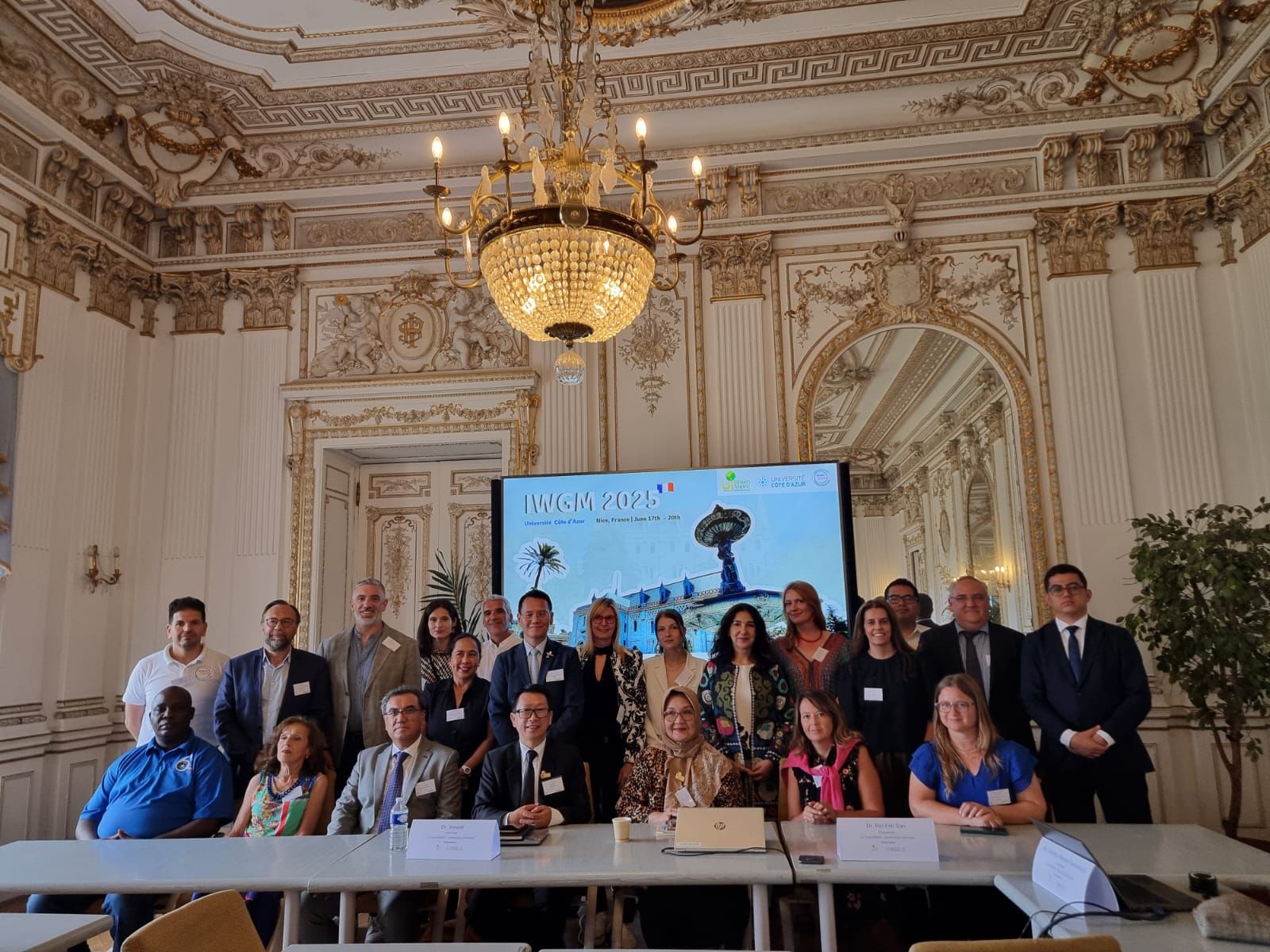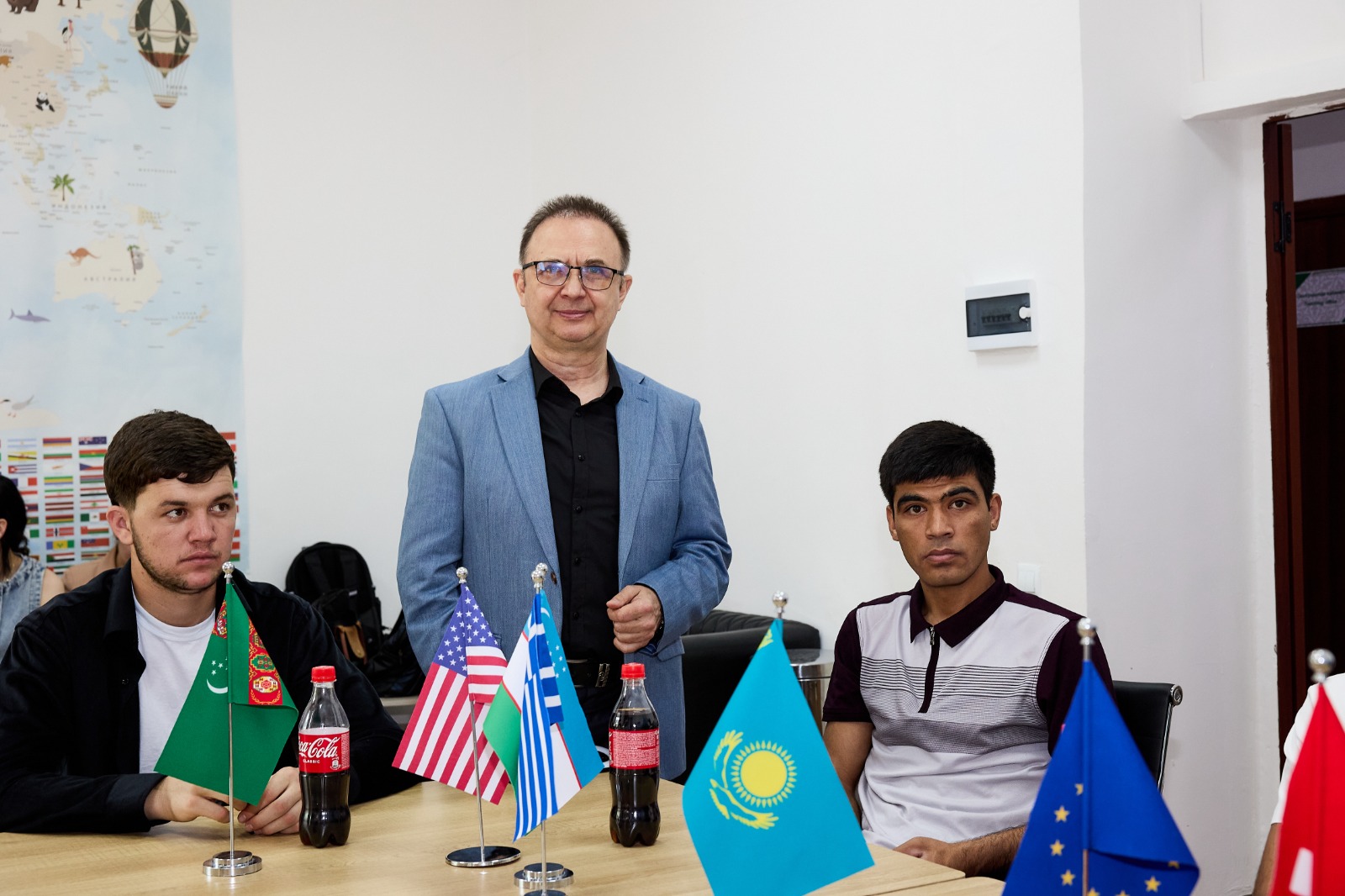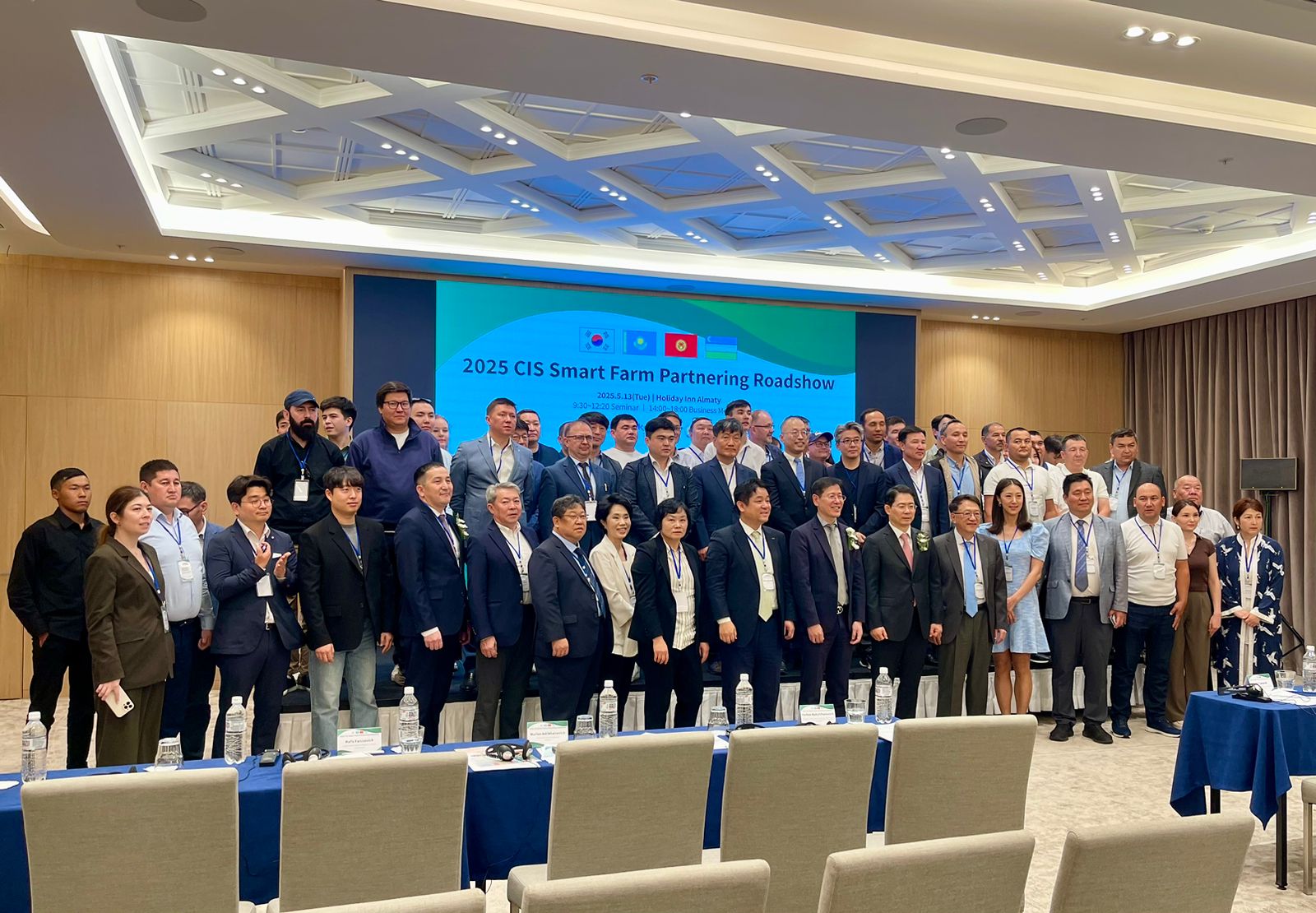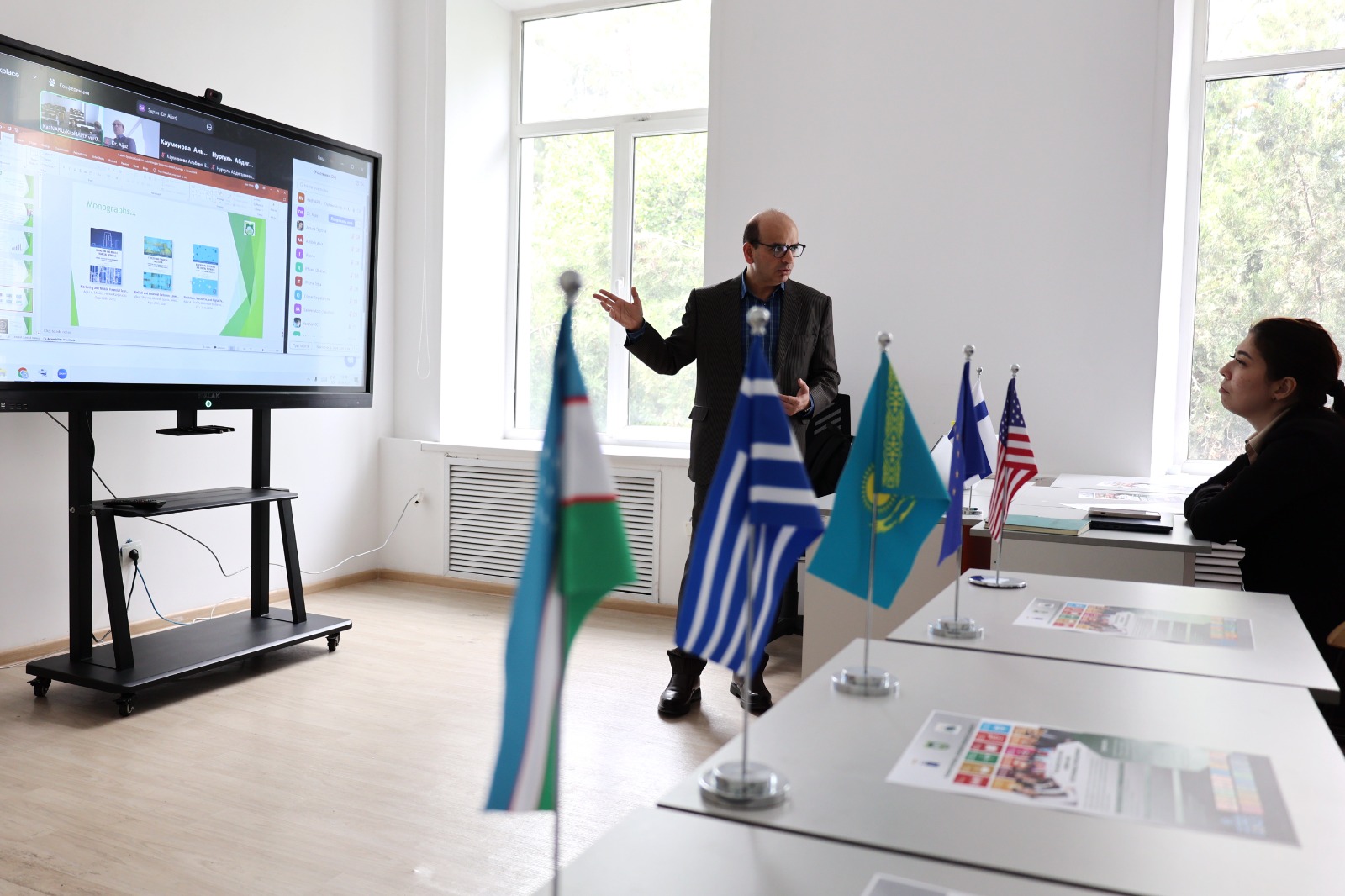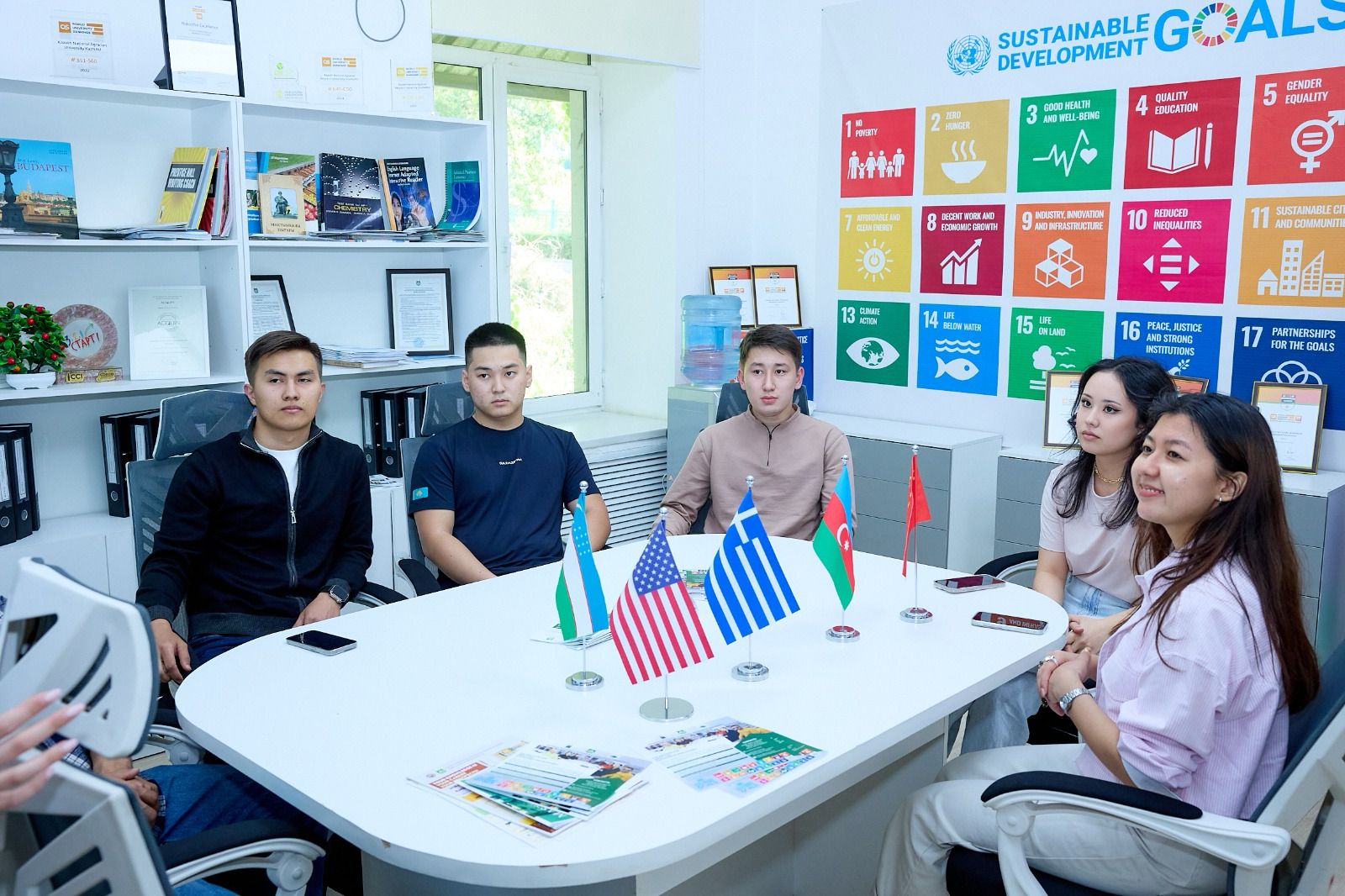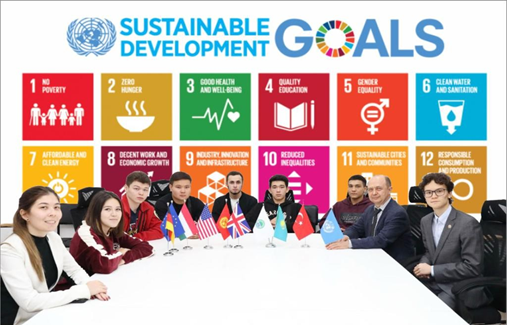
Institute for Green and Sustainable Development - is an international educational and educational division of KazNARU established to promote international cooperation and international relations with foreign partners. It covers the issues of internationalization of education, sustainable development goals (SDGs) and strengthening research and development (R&D) ties, including the development of cooperation with universities, international organizations, companies, etc.
The main mission of the Institute is to internationalize education and strengthen research cooperation by organizing and providing access to various conferences, seminars and trainings for students and faculty in the field of SDGs, entrepreneurship, innovation management, and development of start-up projects on green economy. Also, the Institute is working on organizing the promotion of the flagship program of the university - the MBA/EMBA program and assists in the recruitment of local and foreign students to study under the MBA/EMBA programs.
The priority areas for the Institute are the following:
- Development and implementation of scientific and research projects and programs on the implementation of the Sustainable Development Goals (SDGs), including the implementation of the Green Campus project;
- Development of curricula on sustainable development (environmental, economic and social aspects of sustainable development), green economy, green agro-economy, and energy conservation policy;
- Participation in competitions in order to receive funding for seminars, trainings and applied research in the country and abroad;
- Coordination of the efforts of university specialists in developing cooperation with representatives from near and far abroad and in working with organizations interested in intensifying and improving work, including UNAI, FAO, UNDP, UNESCO, UNIC, EBRD, etc.;
- Conclusion of agreements on scientific relations with similar research institutions of the republic, as well as foreign countries, including UNAI, FAO, UNDP, UNESCO, UNIC, etc.;
- Organization of international and republican conferences and symposiums, implementation of internships, exchange of scientists, scientific expeditions, exhibitions, and thematic meetings;
- Carrying out publishing activities and implementation of joint publishing projects with similar organizations in the country and abroad;
- Strengthening the material and technical base that ensures the conduct of research in relevant scientific areas;
- Improving the quality of training of bachelors, masters, PhD-doctoral students by involving them in scientific activities and using research results in the educational process;
- Development and implementation and implementation of educational programs (TVET, universities, trainings, online, MOOCs), and development of international cooperation
- Development and implementation of innovative approaches in the process of university promotion in international rankings (QS, Times Higher Education, Greenmetric, etc.);
- Creation of conditions for scientific and information support of the educational process;
Documents, sustainable development projects: Policy of sustainable investments, Policy of gender equality etc
The Institute for Green and Sustainable Development: documents, policies and strategies on SDGs
The Institute for Green and Sustainable Development has been actively engaged in driving forward sustainable practices through strategic activities and extensive consultations. By collaborating with industry experts, policymakers, and academic leaders, the Institute has developed comprehensive frameworks that integrate sustainability into diverse sectors. Their efforts include organizing workshops and seminars to gather insights and address key environmental challenges. Through collaborative consultations, the Institute has crafted policies that promote climate action and the integration of sustainable development principles. These policies focus on equipping stakeholders with the necessary knowledge and tools to effectively address sustainability challenges.
Additionally, the Institute's initiatives emphasize sustainable procurement and investment practices, encouraging environmentally responsible economic decisions. By fostering an inclusive dialogue among various stakeholders, the Institute ensures that the strategies and guidelines developed are robust and widely applicable. These efforts highlight the Institute's dedication to promoting a green and sustainable future, ensuring that sustainability is a core component of institutional and community frameworks.
List of documents
1. SDGs Order on the Establishment, Composition and Provisions of the Sustainable Development Committee
2. SDGs Action Plan for implementation of KazNARU’s SDG policy
3. SDGs Annual Training Plan on SDGs
4. SDGs Climate Action Policy
5. SDGs List of Educational Programs within the SDGs
6. SDGs List of Courses within the SDGs
7. SDGs List of Scientific Projects Related the SDGs
8. SDGs List of Scientific Events Related the SDGs
9. SDGs List of Scientific Infrastructure
10. SDGs Student Communities
11. SDGs List of events within the SDGs
12. SDGs Report on Inclusion Policies
13. SDGs Statue of Institute for Green and Sustainable Development
14. SDGs Regulations Assessment of knowledge literacy about SDGs
15. SDGs Report on SDGs at the University
16. SDGs List of Citywide Events
17. SDGs Sustainable Development Policy
18. SDGs Sustainable Development Strategy of "Kazakh National Agrarian University”
19. SDGs Sustainable Procurement, Financing and Investment Policy
20. SDGs Strategy for Achieving Carbon Neutrality and Sustainable Development at KazNARU
Kazakh National Agrarian Research University| Kazakh National H-index Ranking
Green and White Minimal Sustainable Living Presentation
Green Illustrated Sustainable World Presentation
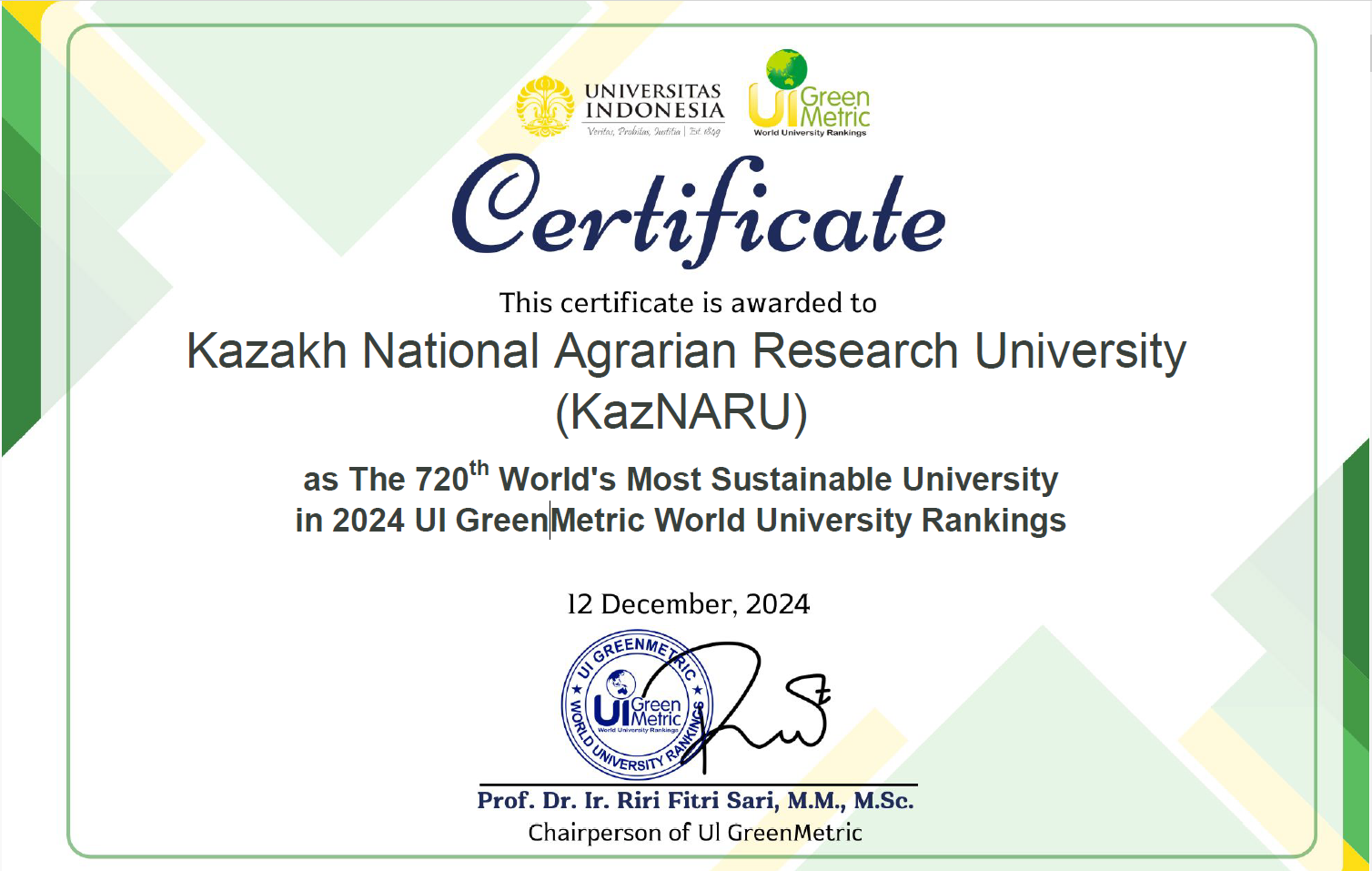
For almost 10 years Kazakh National Agrarian Research University (KazNARU) has been participating in the work of UI GreenMetric World University Rankings (which was established in 2010 by the University of Indonesia). UI GreenMetric World University Rankings ranks universities around the world in six categories:
- convenient university infrastructure;
- Use of energy-efficient and water-conserving technologies on campus;
- programs to recycle university-generated trash and conserve water;
- convenient transportation routes on campus,
- that reduce carbon dioxide and particulate emissions;
- environmental education in the university's educational programs.
The purpose of this ranking is to assess the current status and policies related to green campus and sustainability at universities around the world and reflects the efforts made by the institution to implement green and sustainable strategies and programs.
In general, the ranking utilizes the concept of environmental sustainability, which includes three elements such as: environmental, economic and social.
The environmental aspect involves the utilization of natural resources, environmental management and pollution prevention, while the economic aspect involves cost savings and profit making. The social aspect includes education, community and social
engagement.
University performance is assessed according to six indicators: environment and infrastructure, energy and climate change, waste, water, transportation, education and research. To participate in the rating, universities need to submit not only quantitative data about their university, but also confirm this information with a reference to regulatory documents, scans of orders, news from the media, photos, etc.
KazNARU astively participated in the railization of the UI GreenMetric World University Ranking program. KazNARU took in UI GreenMetric World University Ranking (Asia) in 2024 - 720th place in the world (9th place in Kazakhstan).
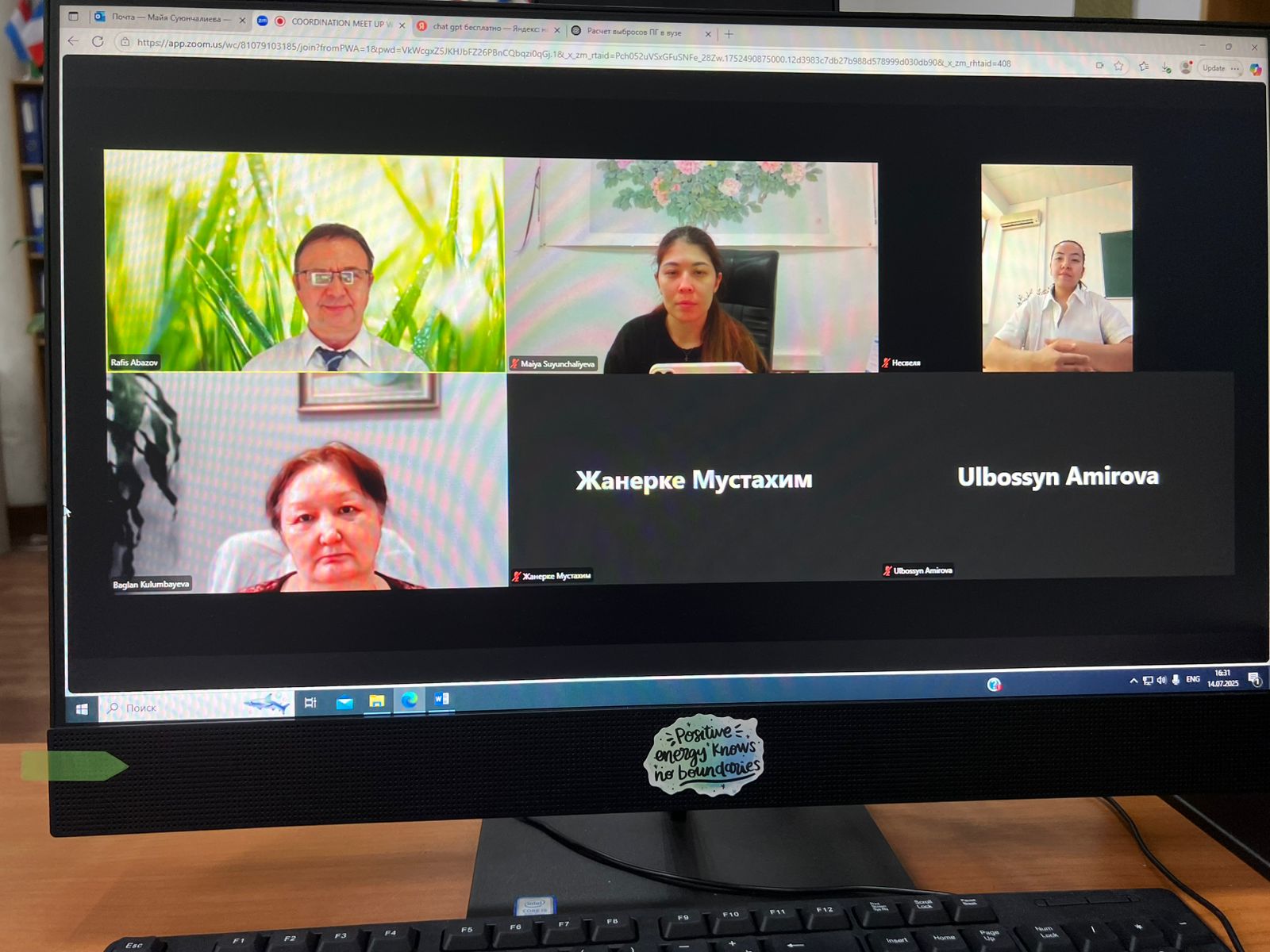
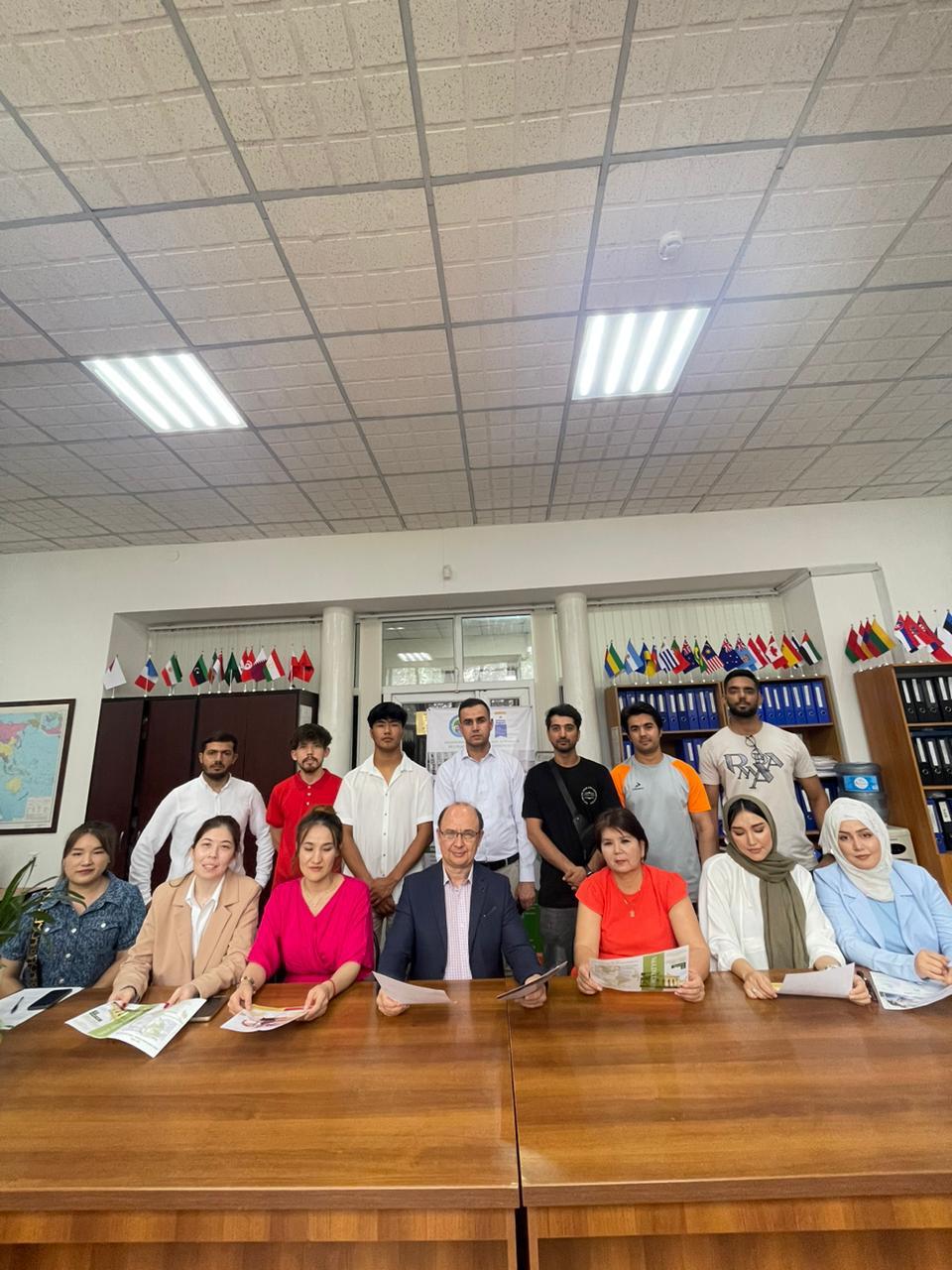
Green Campus is a program that mobilizes students and faculty of the Kazakh National Agrarian Research University (KazNARU) to work on plans and projects related to sustainable development. The program participants are also engaged in implementing the principles of the United Nations Academic Impact Program (UNAI) and sustainable development of the university campus.
Green Campus is KazNAIU's roadmap to promote the implementation of the Sustainable Development Goals (SDGs), to promote the ideas of green economy and global action program to combat climate change. We are making a difference today!
KazNARU's Climate Change Action Plan stipulates that every member of the community has a role to play in achieving the SDGs. Realization of Green Campus” concept is one of the ways to contribute to the creation of a sustainable campus of KazNAIU, through the introduction of innovative approaches in the development of healthier student life, designed to become a model for other universities in Kazakhstan in the development of their own ‘green campus’.
Projects.
Grow a tree; grow a flower!
KazNARU's green campus concept stipulates that every student and every faculty member can and should plant trees and flowers on and off campus every year! The university plans to plant additional flowers and trees to beautify its campus and to involve local communities and international companies and organizations in the greening process.
Reuse and recycle!
We would like to encourage all students and all faculty to recycle or reuse unwanted items, including plastic bottles, paper, electric batteries, old cell phones, furniture, equipment, and other items. Appropriate collection boxes will be placed throughout the campus at KazNAIU.
Walk, bike or ride an electric scooter!
We would like to encourage all students and all faculty to walk and/or bike to campus! KazNAIU plans to create safe and secure bike parking spaces and encourage everyone to do their part in reducing carbon emissions and implementing our climate action plan by adapting to healthier lifestyles and exercise!
Become a volunteer to lead the Sustainable Development Goals (SDGs)!
We would like to encourage all students and all faculty to participate as volunteers in the activities and campaigns of the “United Nations Academic Impact Program” (United Nations Academic Impact Program).United Nations Academic Impact Program (UNAI), as well as various other volunteer activities initiated by local NGOs, universities, international partners, UN agencies and various other stakeholders.
Reduce water consumption and drafts in windows!
We can work on efficient water and energy management and work on saving a lot of water and energy by taking care of our work environment by sending timely maintenance requests to make our space more comfortable and efficient.
Reduce your electricity consumption!
We would like to encourage everyone to turn off electric lights, equipment, and unplug electronics when not in use! This is especially important at night and during weekends and breaks! An important part of this is to promote and publicize the reduction of electricity use amongst loved ones friends, coworkers and the community!
Promote the reduction of plastic use and the use of reusable bottles!
We would like to encourage students and all faculty to use the filtered water stations on campus to refill their water bottles and containers, and to use reusable bottles as much as possible and to eliminate or increasingly use less disposable plastic bottles and utensils!
Development and self-development: SDG courses and trainings /Promote the principles and goals of sustainable development on the KazNAIU website, where SDG training guides can be posted regularly We can also use social media and calendar of events to learn about environmental and climate change research.
Promote healthy and sustainable habits and lifestyles!
Promoting the idea that students and faculty can commit to a “green week”: participating in greening activities, implementing climate action plans, and learning how to make changes to their lifestyles! “Green Campus” promotes the ideas that you should know what you eat and what you can do to help the university reduce its environmental impact!
Bring a friend: spread the word about the “green campus” project! We are developing a “green campus” and a “climate change plan” by organizing events and promoting sustainability initiatives on campus. We would like to encourage publicizing events through posters, PowerPoint presentations, social media and flyers about the green campus project.
GREEN STUDLIFE 2025 ECO FESTIVAL
Forest Resources are an Integral Part of a Green Economy
Taza Kazakhstan, February 26, 2025
"Green Campus" program for sustainable development and environmental protection
Green Office Annual Action Plan 2024-2025
Action Plan for "GREEN CAMPUS" Program, September 2024 - May 2025
Green Campus UNAI and SDG plan
Report on GREEN CAMPUS Program Implementation, September 2023 - June 2024
Regulations on Assessing Knowledge Literacy of Sustainable Development among Employees
Annual Specialized Training Plan on Environmental and Social Aspects of Sustainable Development
Environmental Impact and Sustainability-Focused Initiatives of the ESG
The policy of sustainable investment of NJC "Kazakh National Agrarian Research University"
Regulations On the International Institute of Green and Sustainable Development
Environmental Educational Program 6B05201 “Ecology” (2024–2028): Advancing Sustainability Education
7М05204- Ecology (Еducational program) - 2024-2026
8D05204- Ecology (Еducational program) - 2024-2027
Regulations on work with students with special needs
Policy for sustainable development and use of water resources in KazNARU
University's Sustainable Development Strategy
Policy in the field of procurement NJC "Kazakh National Agrarian Research University"
Sustainable transport development strategy at the KazNARU сampus
Strategy for achieving carbon neutrality and sustainable development of Kaznaru
2025 11 05 SDG report into teaching curriculum.pdf
2025 11 05 Greenmetric green jobs .pdf
Collaborative Partnership with Ecosen Company on Plastic Recycling
Professional Qualification Development in Environmental and Sustainability Fields
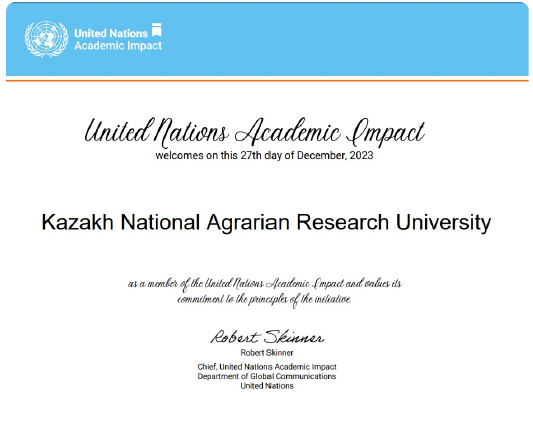
United Nations Academic Impact (UNAI) is an initiative that engages higher education institutions with the United Nations (UN) in supporting and contributing to the realization of the Organization's goals and principles, including the promotion and protection of human rights, access to education, sustainable development goals and conflict resolution on our planet.
The UNAI program was officially launched by the UN Secretary-General on November 18, 2010 to bring together the global academic communities, especially the world's universities and higher education institutions, with the United Nations (UN) to promote the goals and mandate of the UN through action and research within a shared culture of intellectual social responsibility. UNAI partnered with the Global Education First Initiative (GEFI) proposed by the UN Secretary General in 2012 with the following main objectives: achieving universal primary education, improving the quality of education and nurturing global citizenship.
Today UNAI can be proud to have more than 950 academic institutions in more than 100 countries and about 40 members of academic networks as members. Kazakh National Agrarian Research University” (KazNARU) has been a member of UNAI since 2016.
UNAI's work aims to sensitize ministers of education, university rectors and other academic experts to the critical importance of fostering global citizenship at the higher education level in order to achieve global sustainable peace and development. in the 21st century.
The UNAI Center at KazNARU works to promote partnerships with UN agencies and universities around the world in the following areas:
- developing partnerships between the United Nations and the global academic community
- mobilizing students from UNAI member universities and outstanding scholars from various academic institutions through their active participation in the United Nations process as well as in the implementation of the “green campus” programme;
- participation in grant programs and initiatives to promote international peace and security and conflict resolution;
- intercultural dialog and reconciliation with the world's growing intolerance and violent extremism;
- work with the “International Institute for Green and Sustainable Development” at KazNARU to mobilize a global network of member universities and academic institutions through their active participation in the post-2030 Development Agenda implementation and evaluation process.
- Promote global citizenship education,
a) by developing and providing internationally applicable standardized curricula and pedagogies for global citizenship education to be used in primary, secondary and higher education institutions in close cooperation with UNESCO and GEFI.
b) by encouraging and supporting international youth groups such as ASPIRE UNAI (Student Action for Promoting Innovation and Reform through Education) and YAG GEFI (Youth Advocacy Group) to accelerate and launch joint projects at regional or global level for primary, secondary and tertiary students to build global citizenship.
through education) and YAG GEFI (Youth Advocacy Group) to accelerate and launch joint projects regionally or globally for primary, secondary and tertiary students to build global citizenship.
c) by exploring the possibility of establishing an International Center to pursue the two objectives of global citizenship education described above.
Students' projects at KazNARU 2025 Hult Prize
Our talented students don't just dream about change, they create it! During the Hult Prize Demo Day, they developed innovative ideas aimed at solving global problems - from sustainable business to social startups.
💡 The first project is the Smart Trash Bin
Developing a smart trash can with artificial intelligence (ii) that automatically recognizes, sorts and analyzes waste. trash uses computer vision and sensors to identify the type of trash (plastic, glass, paper, organic matter, metal) and direct it to the appropriate container.
💡 The second project is Bottle Sorting.
The job of the machine is to reduce volume and provide cleanliness. Reduces the volume of bottles and makes them easier to recycle. Drains the liquid and provides sanitary cleaning of the waste.
💡 Third project -Stone utensils.
In our world, people are increasingly looking for eco-friendly, unique and premium quality products. Our startup offers an interesting solution in the field of tableware - making plates, mugs and other products from natural stone mined in the mountains of Almaty. We create not just tableware, but a work of art that combines natural beauty, memories and functionality.
💡The fourth project is Comfortable Ride.
The problem of public transport: excessive number of people in public transport, long stay of public transport in traffic jams, duration of interval interval time. The peculiarity of this idea is that there will be fewer people on public transportation and it will be more convenient to get anywhere. Interval time intervals are decreasing as human transportation is increasing year on year.
💡The fifth project is Soile AI.
It is an innovative artificial intelligence based platform that recognizes speech defects, simplifies communication and helps correct speech for people with special needs.
“SOILE - hear, understand, speak.”
English Translation
Signing of a Memorandum with "SDG Alliance Kazakhstan"
November 13, 2025
On November 13, 2025, the Kazakh National Agrarian Research University (KazNARU), together with the Institute of Green and Sustainable Development, organized a meeting with SDG Alliance Kazakhstan. During the meeting, a memorandum was signed with the alliance.
"SDG Alliance Kazakhstan" is a platform aimed at promoting the Sustainable Development Goals (SDGs) in Kazakhstan and beyond. The website meets key modern civil society standards: accessibility (WCAG 2.1 AA), privacy protection (GDPR), transparency (public rules), moderation, impact documentation (metrics and reports), and readiness for integrations.
The meeting provided an opportunity to learn more about the alliance’s capabilities, competitions, and other initiatives.
Mr. Vadim Tsurikov, Director of SDG Alliance Kazakhstan, shared essential insights and highlighted three important areas:
-
What the Alliance is and why participation is important;
-
The importance of creating your first startup and participating in competitions and olympiads;
-
The advantages and opportunities that open up in the future.
The event was organized by the Institute of Green and Sustainable Development to foster startup development within the university and enhance participation in international rankings.
Venue: International Office, Room 36
Entrepreneurship Development Institute in India
17-31 March 2025
From March 17-31, 2025, leading specialist of the Institute of Green and Sustainable Development Maiya Suyunchaliyeva and senior lecturer of KazNARU Nurgozhaev Azamat participated in ITEC training courses from the Embassy of India in Kazakhstan. Educational courses were held in Ahmedabad, India at the Entrepreneurship development institute in India. The course was attended by representatives of business communities, ministries and private companies from different countries: regions of Africa, Sri Lanka, Colombia, Vietnam, Laos, Republic of Tajikistan.
The Indian Technical and Economic Cooperation Program, abbreviated as ITEC, is the leading capacity building platform of the Ministry of External Affairs, Government of India. Established in 1964, ITEC is one of the oldest institutional mechanisms for international capacity building, having trained over 200,000 officials from 160+ countries in both civil and defense sectors.
Today, ITEC uses a variety of different methods to fulfill its mandate of capacity building.
During the training, issues related to the implementation of entrepreneurship in different regions of India were discussed and participants shared their experiences from around the world. Staff from the Kazakh National Agrarian Research University also made a presentation on entrepreneurship development in the Republic of Kazakhstan.
Maiya Suyunchalieva and Azamat Nurgozhaev shared their experience in the development of startup projects in Kazakhstan, talked about new trends and the program “Digital Kazakhstan”
During the internship, Maiya also gave an interview about the new opportunities of the ITEC program and spoke about the Kazakh National Agrarian Research University.
Additional information
These courses allowed establishing international relations, to present the university in the international arena, to invite experts to participate in the International Summer School 2025 and for the MBA/EMBA program in KazNARU.
Venue: Ahmedabad, India
🌍 Today, we were honored to welcome the director of EFES company for an engaging guest lecture on Environmental, Social, and Governance (ESG) principles.
Time : 16.00
Place: one Waigeningen
The session illuminated how aligning sustainability goals with business performance is not just forward-thinking but essential in today’s dynamic world.
The director highlighted how focusing on environmental responsibility leads to reduced costs through energy efficiency and waste management, while enhancing customer loyalty among environmentally-conscious consumers. 🌱 On the social side, supporting communities and embracing workplace diversity cultivates stronger, more cohesive teams. 💡 Governance, too, plays a vital role in building trust through transparency and accountability—making businesses more attractive to ethical investors.
This transformative discussion proved that sustainability is a catalyst for innovation, operational excellence, and long-term profitability. It’s a powerful reminder that when we care for the planet, the rewards extend to the business world as well. 🌟
A heartfelt thank you to EFES for inspiring us to integrate purpose with performance and drive meaningful change for a greener future! 💚
#Sustainability #ESGPrinciples #BusinessSuccess #GreenFuture #EFES #GuestLecture #Innovation
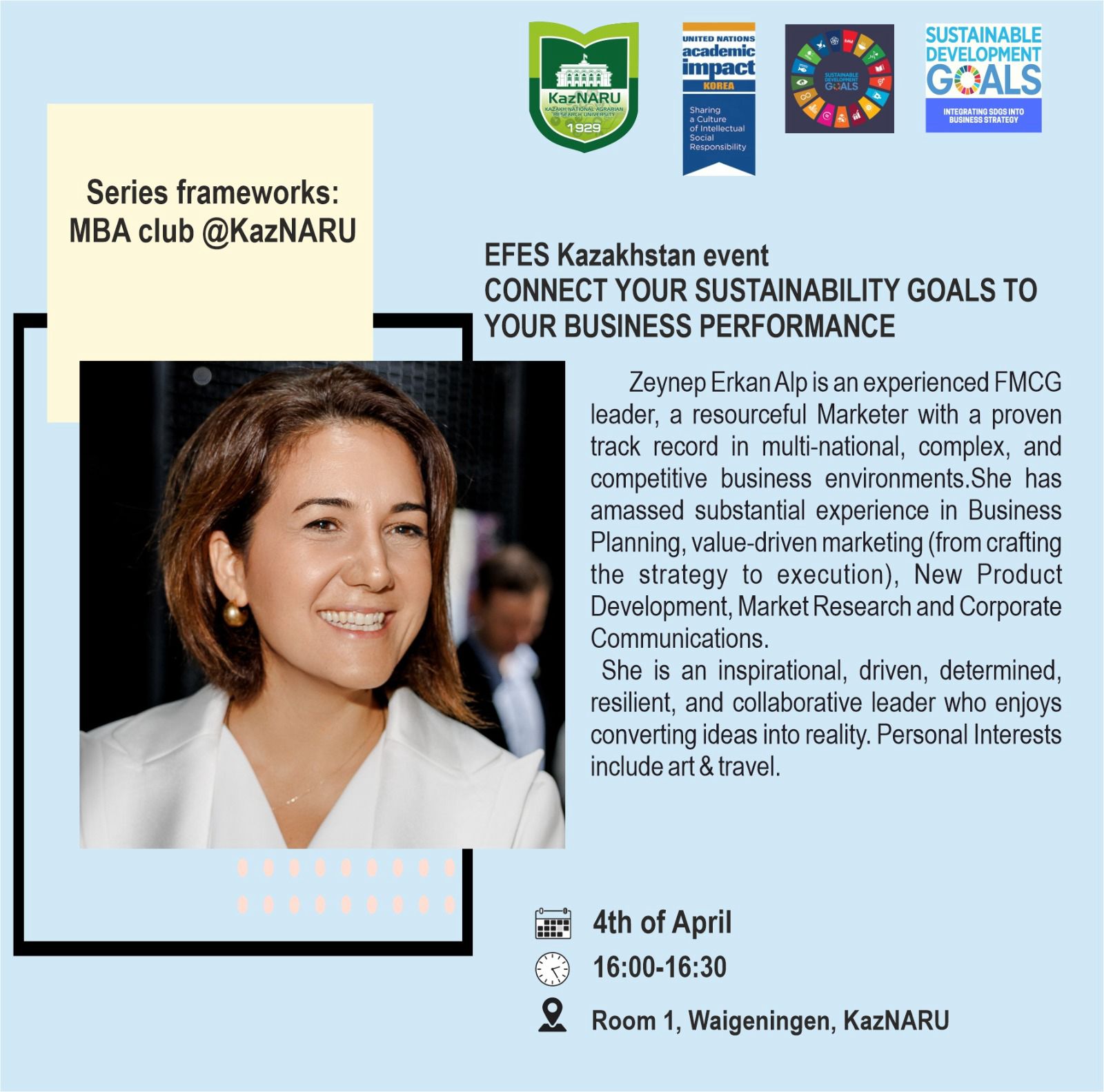
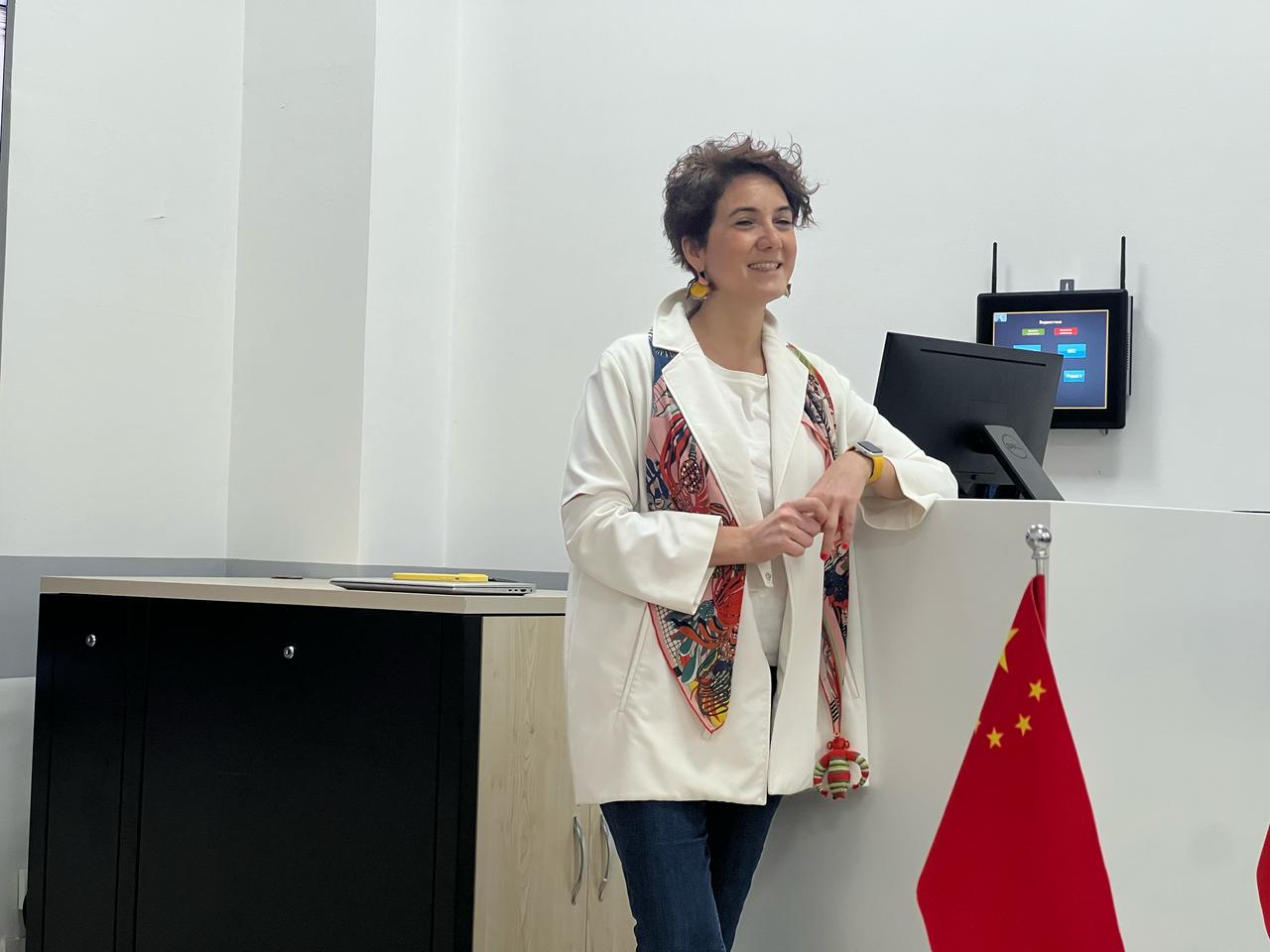
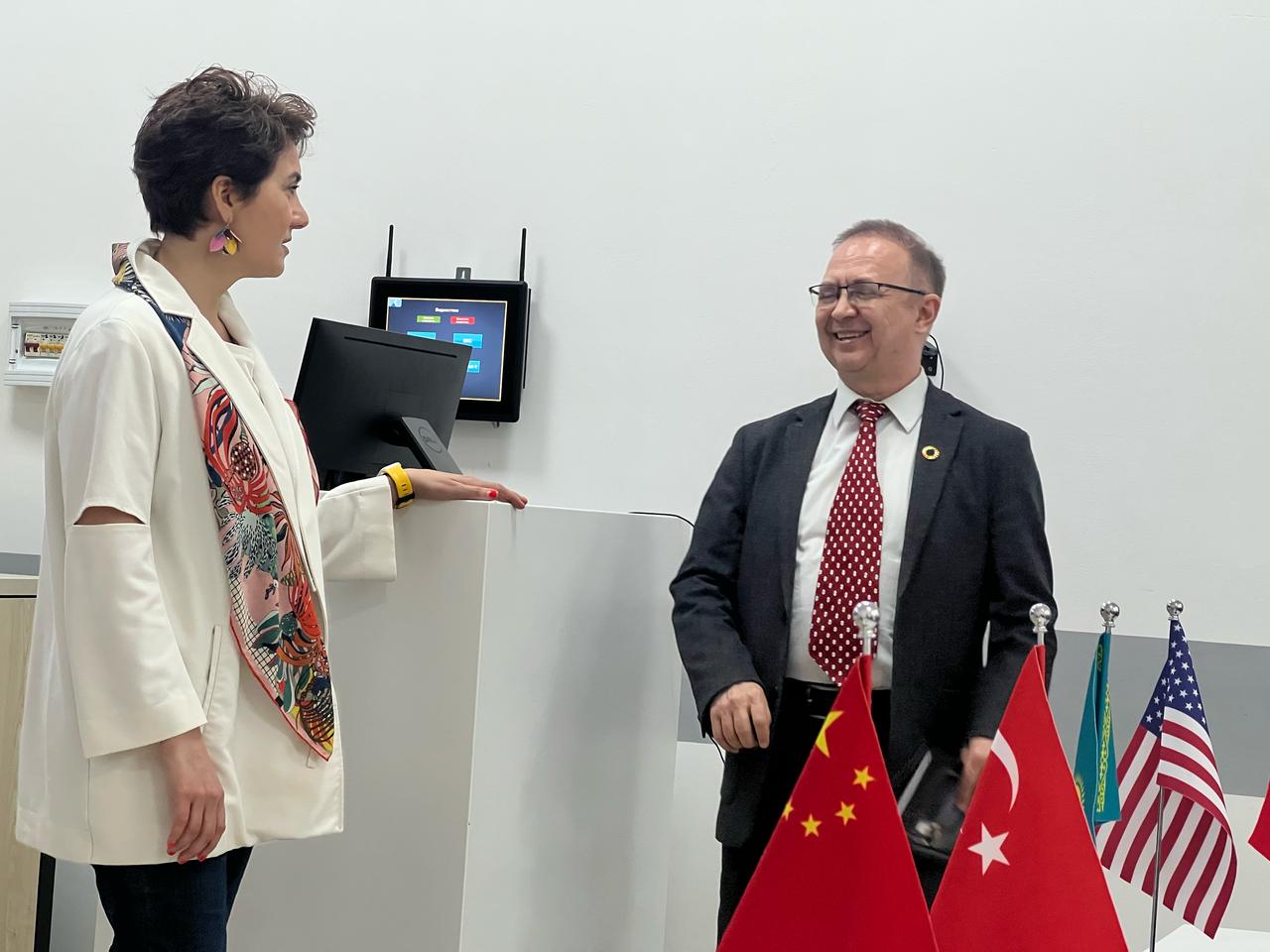
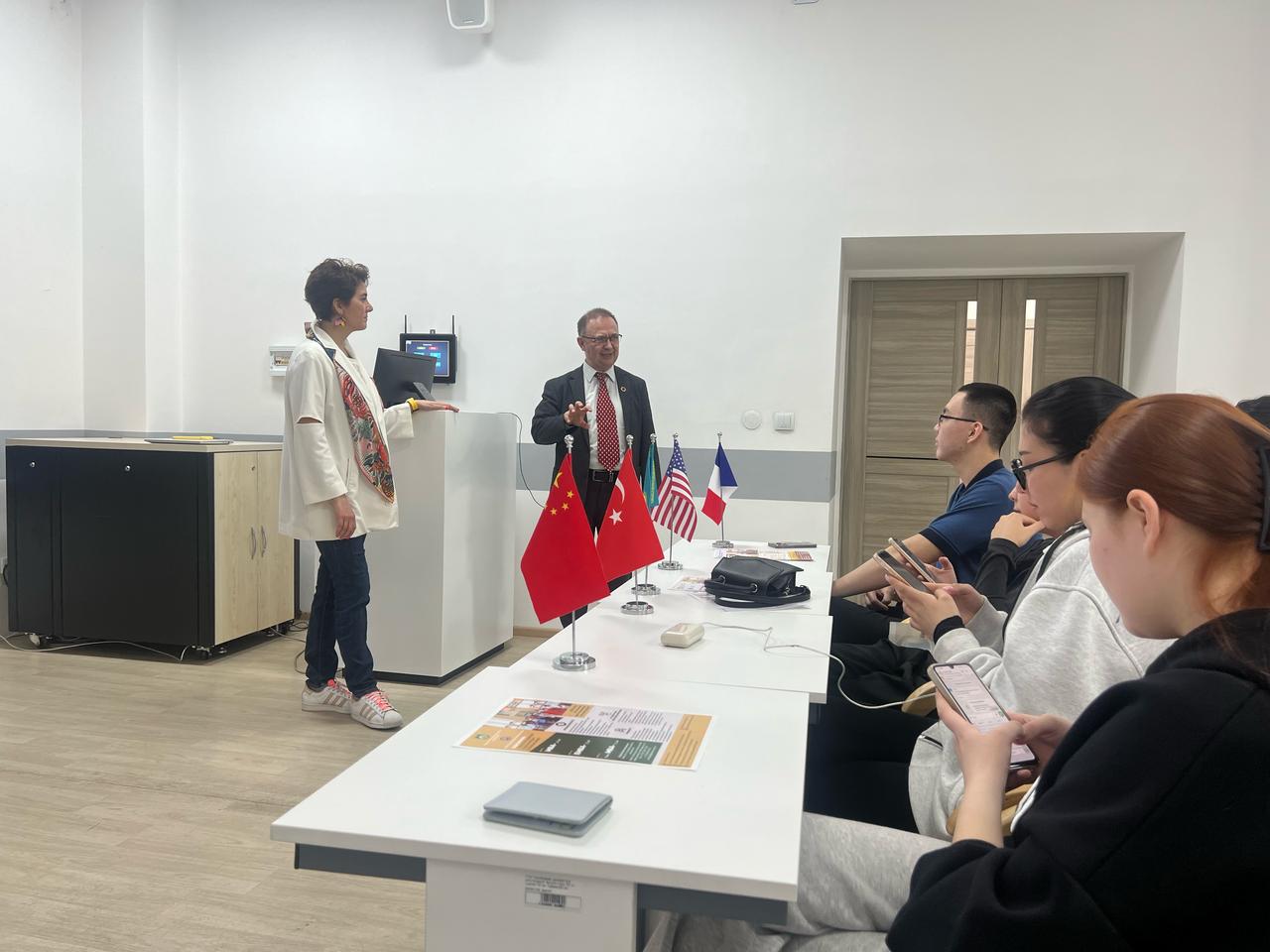
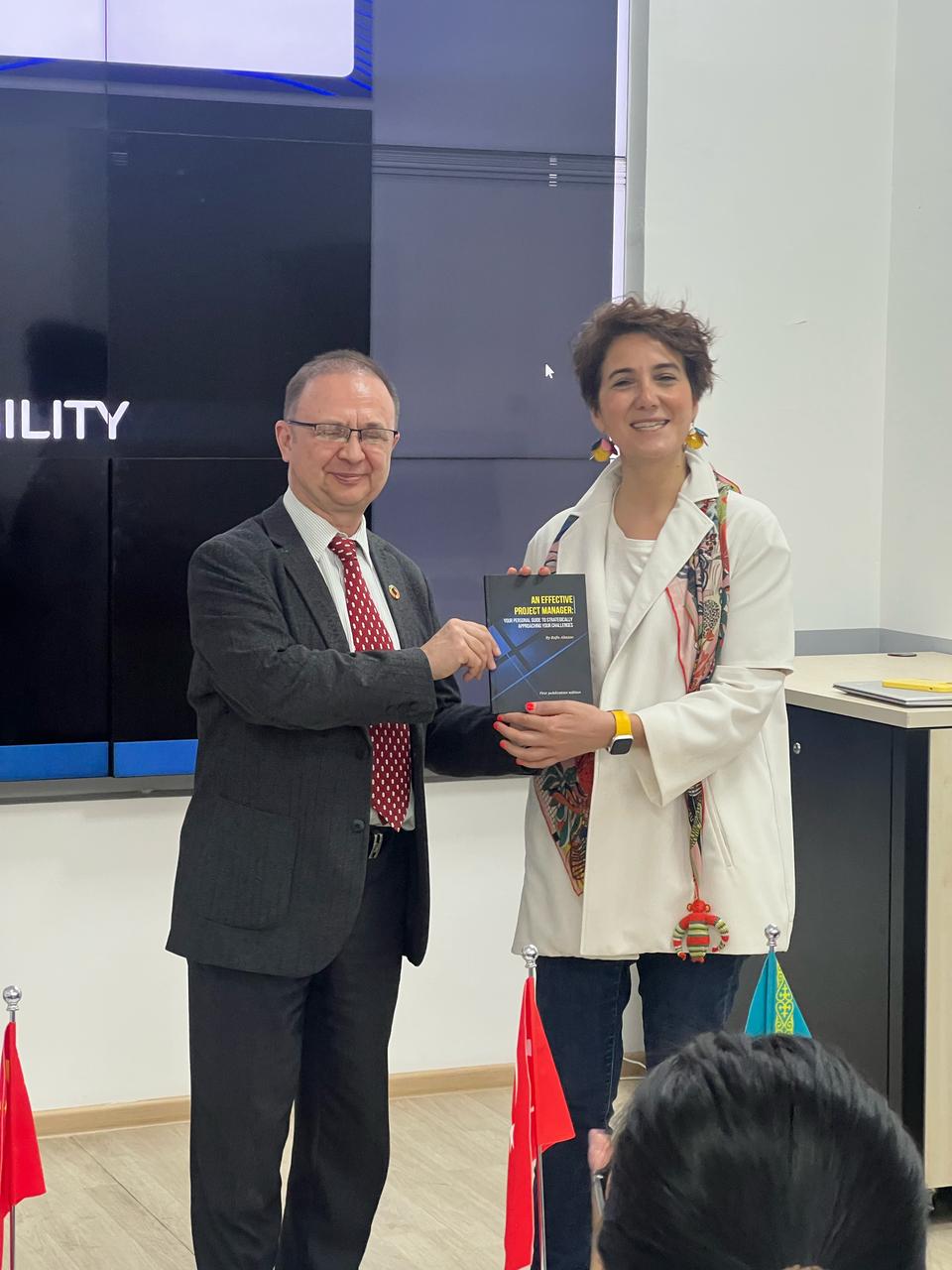
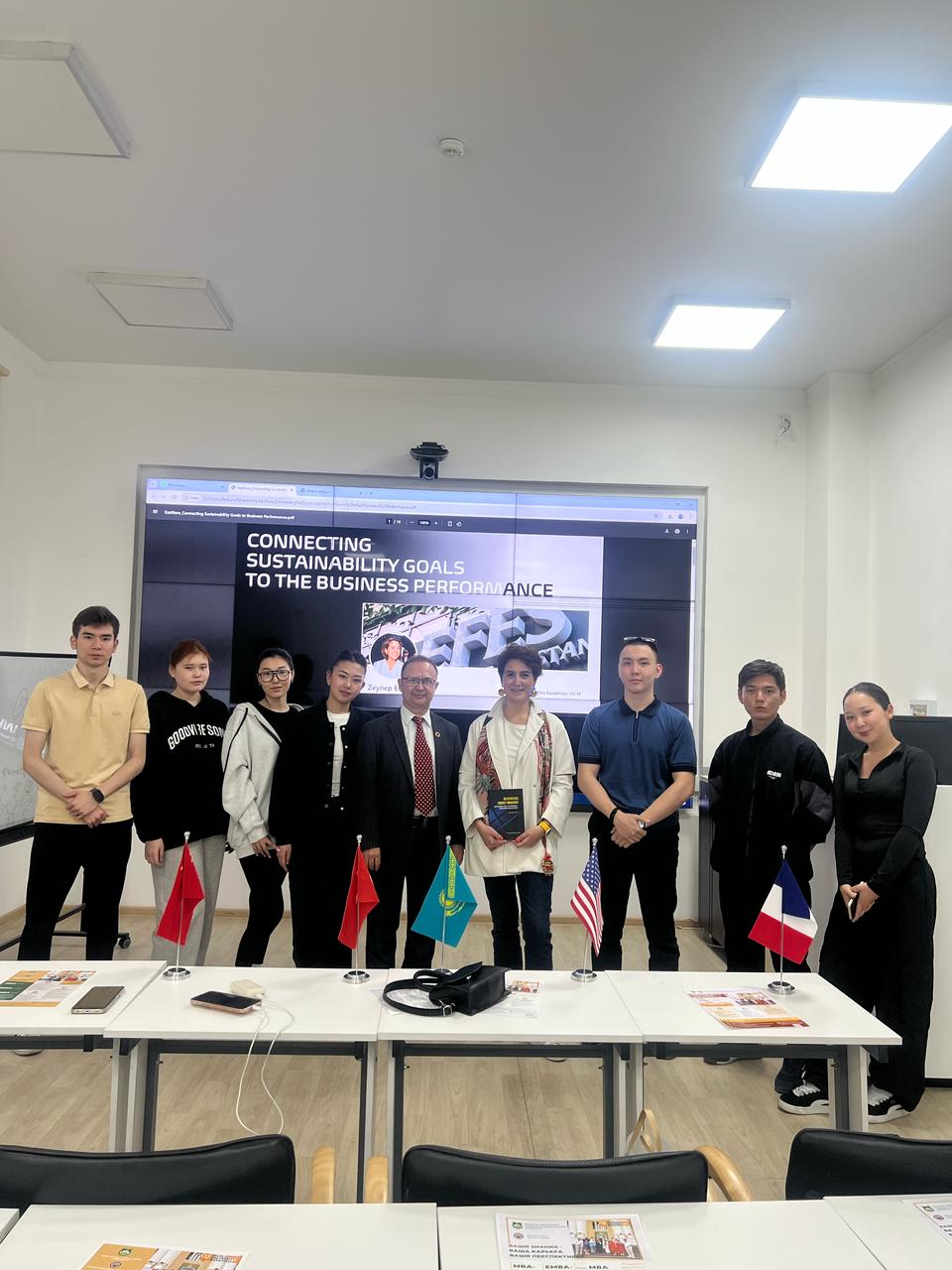
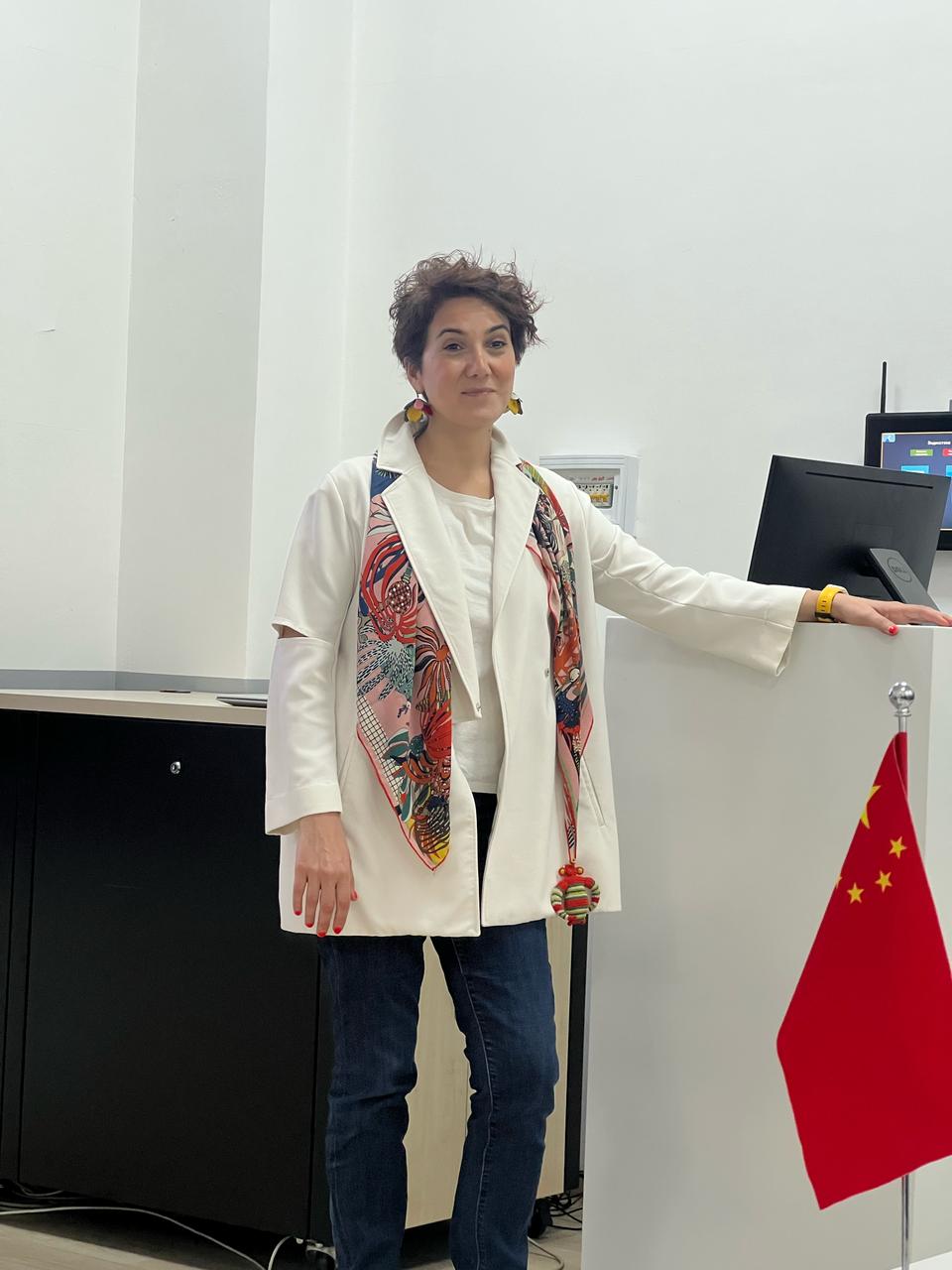
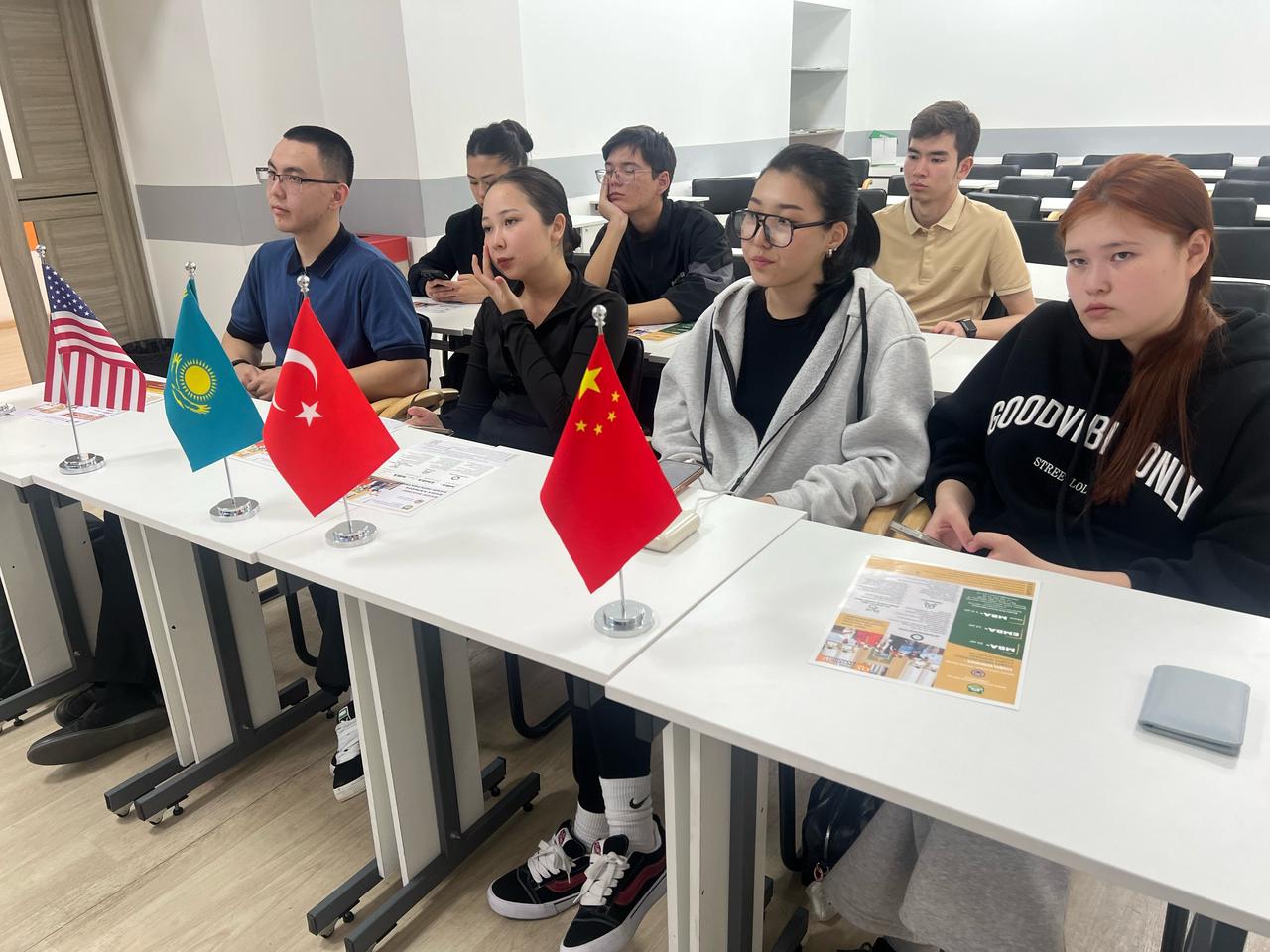
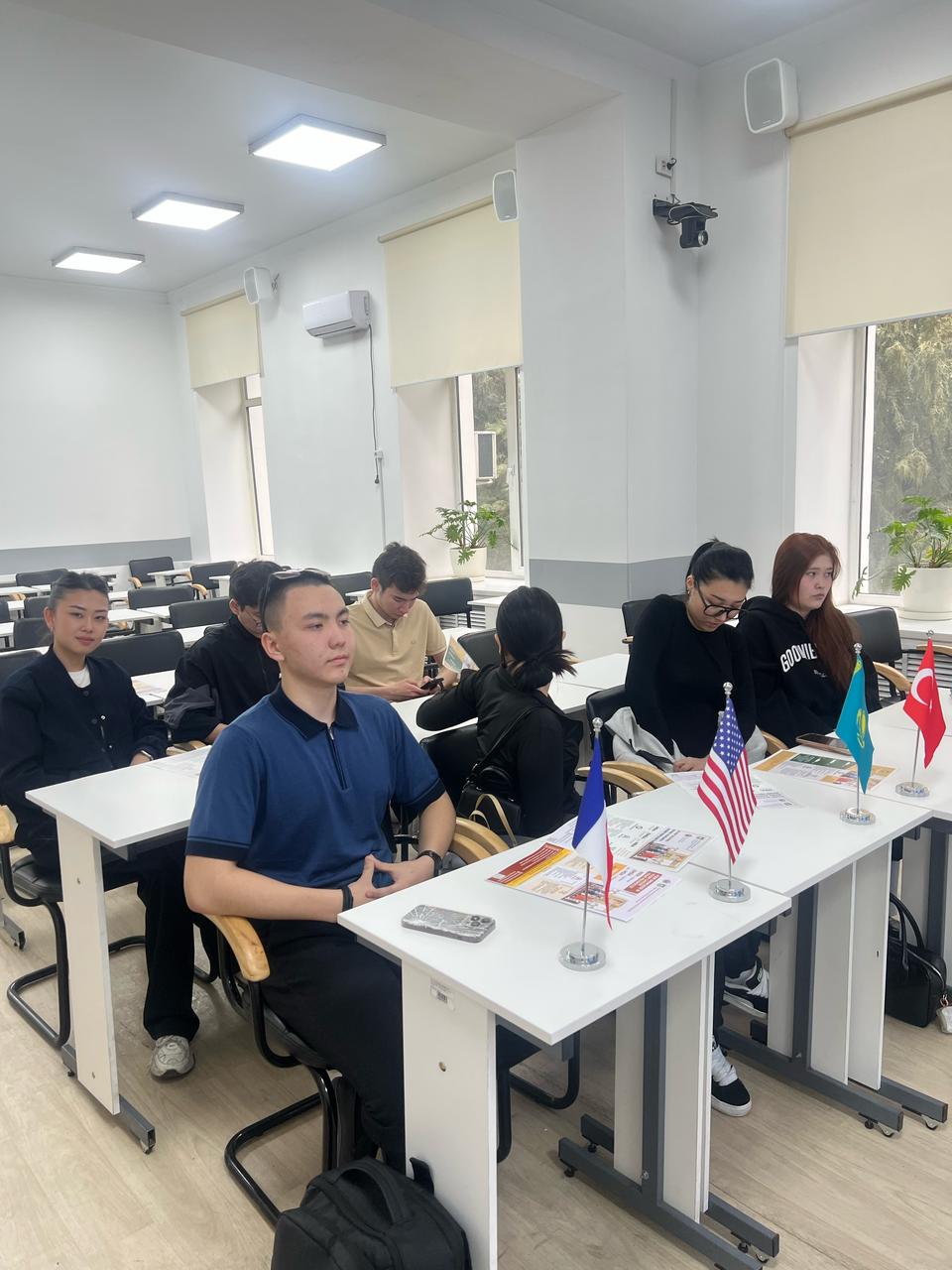
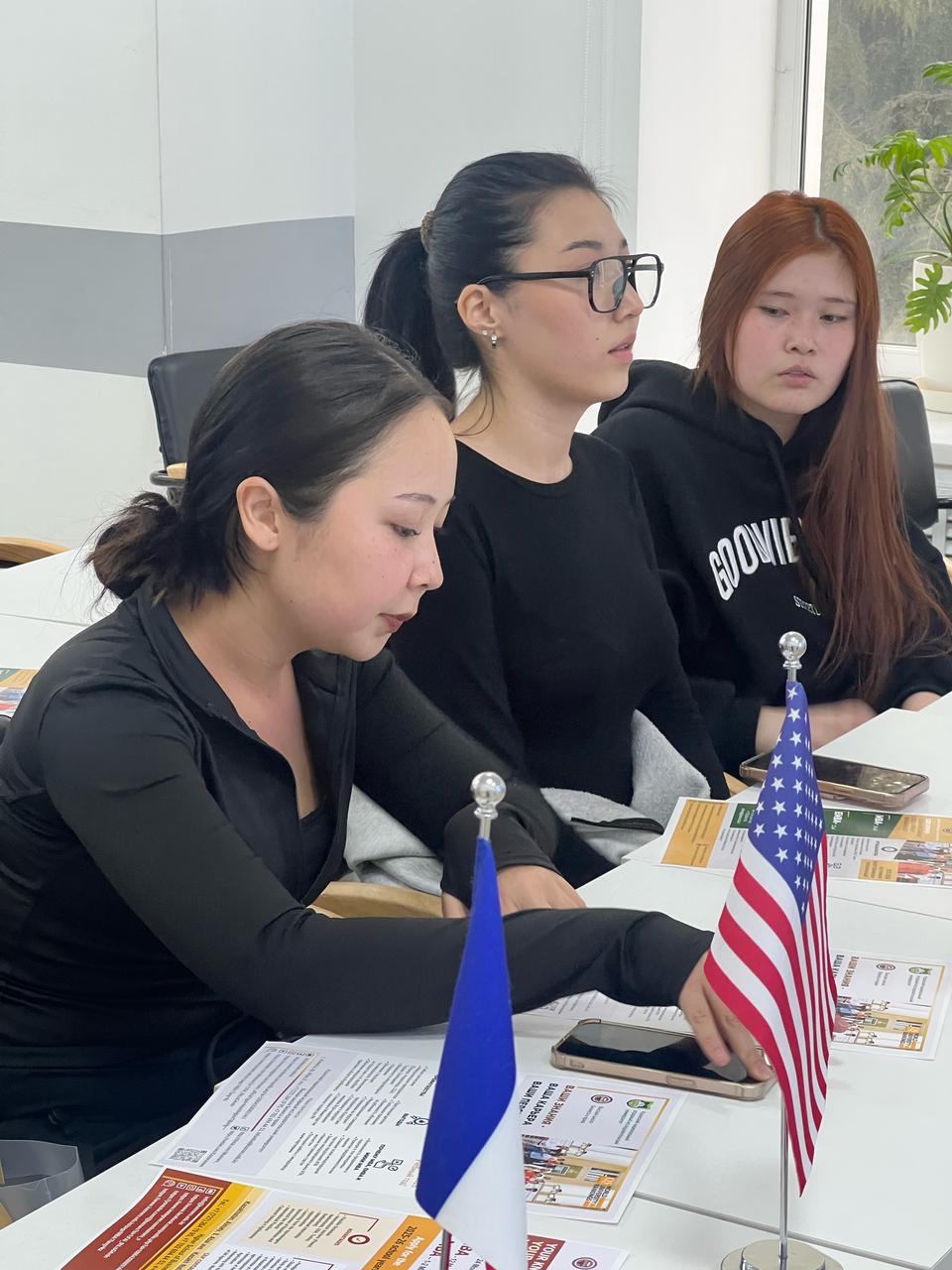
-
SDG 11 (Sustainable Cities and Communities) — through the introduction of eco-friendly waste management practices and the creation of a cleaner university environment.
-
SDG 12 (Responsible Consumption and Production) — by fostering a culture of plastic sorting, recycling, and conscious resource use.
-
SDG 17 (Partnerships for the Goals) — by uniting the efforts of the university, students, businesses, and civil society organizations.
Kazakh National Agrarian Research University (KazNARU) is committed to building a powerful network of international alumni and providing them with a strong foundation for professional success. Our international graduates are our most valuable ambassadors, carrying the university’s reputation for excellence across the globe. We believe that a strong connection between our university and its international alumni is key to fostering a global community and creating lasting opportunities for future generations.
Here are five key points highlighting how KazNARU supports its international alumni and their career development:
1. Global Partnerships for Global Opportunities
KazNARU is not just a leading university in Kazakhstan; it is a global institution with a vast network of international partners and international alumni. We actively participate in exchange programs like Erasmus+ and collaborate with prestigious universities and organizations worldwide. This creates a wealth of opportunities for our students and alumni, including:
* International Internships and Research: Students can gain practical experience and conduct research in leading scientific centers abroad, thanks to our partnerships with foreign universities creating alumni impact on education.
* Global Mobility Programs: Our academic mobility programs allow students and faculty to spend a semester or year at a partner university, broadening their academic and cultural horizons.
* Joint Educational and Scientific Projects: We work with international partners on joint projects that provide our students with exposure to global challenges and solutions, enhancing their employability in a competitive job market.
2. Tailored Career Support and Employability Programs
The journey from graduation to employment is a crucial one, and KazNARU’s career development services are designed to support our international alumni every step of the way. We provide personalized support to help our graduates thrive in their chosen careers, both in Kazakhstan and internationally. This includes:
* Career Counseling and Workshops: We offer workshops for international alumni on CV writing, interview skills, and professional networking to ensure our graduates are well-prepared for the job market.
* Employer Engagement: KazNARU maintains strong connections with leading companies and organizations in the agricultural and related sectors. We organize career fairs, guest lectures, and round tables that connect our alumni with potential employers and industry leaders and international alumni.
* Promoting Entrepreneurship: We encourage and support entrepreneurial spirit among our students and alumni, helping them to develop innovative ideas and turn them into successful start-up projects.
3. A Vibrant International Alumni Network
Upon graduation, our international students become part of a powerful, worldwide alumni community. This network is a source of invaluable professional and social connections. The university actively works to maintain and strengthen this bond through:
* Alumni Association: Our dedicated alumni association serves as a platform for graduates to stay connected with their alma mater and fellow alumni. It organizes events, reunions, and professional development opportunities.
* Mentorship Programs: Experienced alumni serve as mentors, offering guidance and support to recent graduates as they navigate their early careers promoting academic repustation for impact education.
* Shared Success Stories: We proudly share the accomplishments of our international alumni, showcasing their career journeys and demonstrating the value of a KazNARU education on the global stage.
4. Lifelong Learning and Professional Development
The world of work is constantly evolving, and KazNARU is committed to providing its alumni with opportunities for lifelong learning. We believe that an education does not end with a degree, which is why we offer:
* Access to Research and Resources: Alumni can stay engaged with the university’s scientific community, participating in conferences and accessing our extensive library and research facilities for research impact on SDGs for education .
* Postgraduate Opportunities: We encourage alumni to pursue further studies, such as Master's and PhD programs, to deepen their expertise and advance their careers.
* Specialized Training Programs: We offer specialized training and professional development courses to help alumni upskill and stay current with the latest industry trends and technologies.
5. Serving as a Bridge to Your Future
Ultimately, KazNARU serves as a bridge for our international students, connecting them from their academic journey to a world of professional possibilities. We provide a supportive, multicultural environment where students from diverse backgrounds can learn, grow, and build the skills needed to make a positive impact on the world. Our commitment to international excellence, combined with robust career and alumni support, ensures that a degree from KazNARU is a passport to a successful and rewarding career, no matter where in the world your path takes you and where alumni impact for education.
The concept of development of the “Green Office” project at KazNARU is aimed at creating a sustainable and environmentally responsible environment on the territory of the university. Here are 10 key points-directions on which the projects of green office in the Kazakh National Agrarian Historical University are realized.
1. *Improvement of ecological situation on the territory of the university:
The project aims to reduce the carbon footprint and improve the environmental situation in the academic and administrative buildings. This includes creating new green areas, planting trees and flowers, and using sustainable technologies.
2. *Integrating sustainable practices into daily operations:
KazNARU strives to integrate sustainable practices into all aspects of its operations. This includes energy conservation, efficient use of resources and waste reduction.
3. *Fostering a responsible attitude towards nature among students and staff*:
The program aims to foster a culture of respect for the environment among all members of the university community. Training seminars and workshops on environmental topics are organized.
4. *Waste minimization*:
- *Separate waste collection*: Installing containers for separate waste collection (plastic, paper, glass, organic waste) and training students and staff on proper waste sorting.
- *Reducing the use of single-use plastic items*: Using reusable utensils, bottles, and food containers, and banning the use of plastic cups and bags.
- *Electronics recycling*: Installing special boxes for recycling old electronics and batteries, and conducting campaigns to collect and recycle unwanted electronics.
5. *Energy saving and greening*:
- *Transition to energy-efficient lighting*: Using LED lights to reduce electricity consumption.
- *Installing motion sensors*: Automatically turning off lights in empty rooms to save energy.
- *Placement of indoor plants*: Installing plants in offices and classrooms to improve air quality.
6. *Reducing energy and water consumption*:
- *Water-saving technologies*: Installing water-saving faucets and nozzles, monitoring water consumption, and conducting awareness campaigns on the importance of water conservation.
- *Reusable Bottles and Thermal Mugs*: Encouraging the use of reusable bottles and thermal mugs instead of disposable plastic cups.
7. *Training and information campaigns*:
- Holding lectures and seminars on ecology, sustainable development and green technologies.
- Distribution of informational materials (posters, booklets, e-newsletters).
- Creation of a Green Office web page with news, achievements and plans.
8. *Responsibility and motivation*:
- *Rewards and Recognition*: Introduction of awards for units that actively implement environmental initiatives.
- *Monitoring and Reporting*: Regular monitoring and reporting on environmental standards.
- *Interaction with partner organizations*: Sharing best practices and collaboration with partners.
9. *Community Involvement and Volunteer Programs*:
- Engaging students and staff in volunteer programs and environmental initiatives.
- Host events to raise environmental awareness and participate in environmental improvement projects.
10. *Future Initiatives:
- Introducing courses on sustainable development into curricula.
- Inviting experts to conduct master classes and trainings.
- Establishment of student environmental clubs for active participation in environmental projects.
These points represent the basis of the concept of “Green Office” at KazNAIU, aimed at creating a sustainable and environmentally responsible university community.
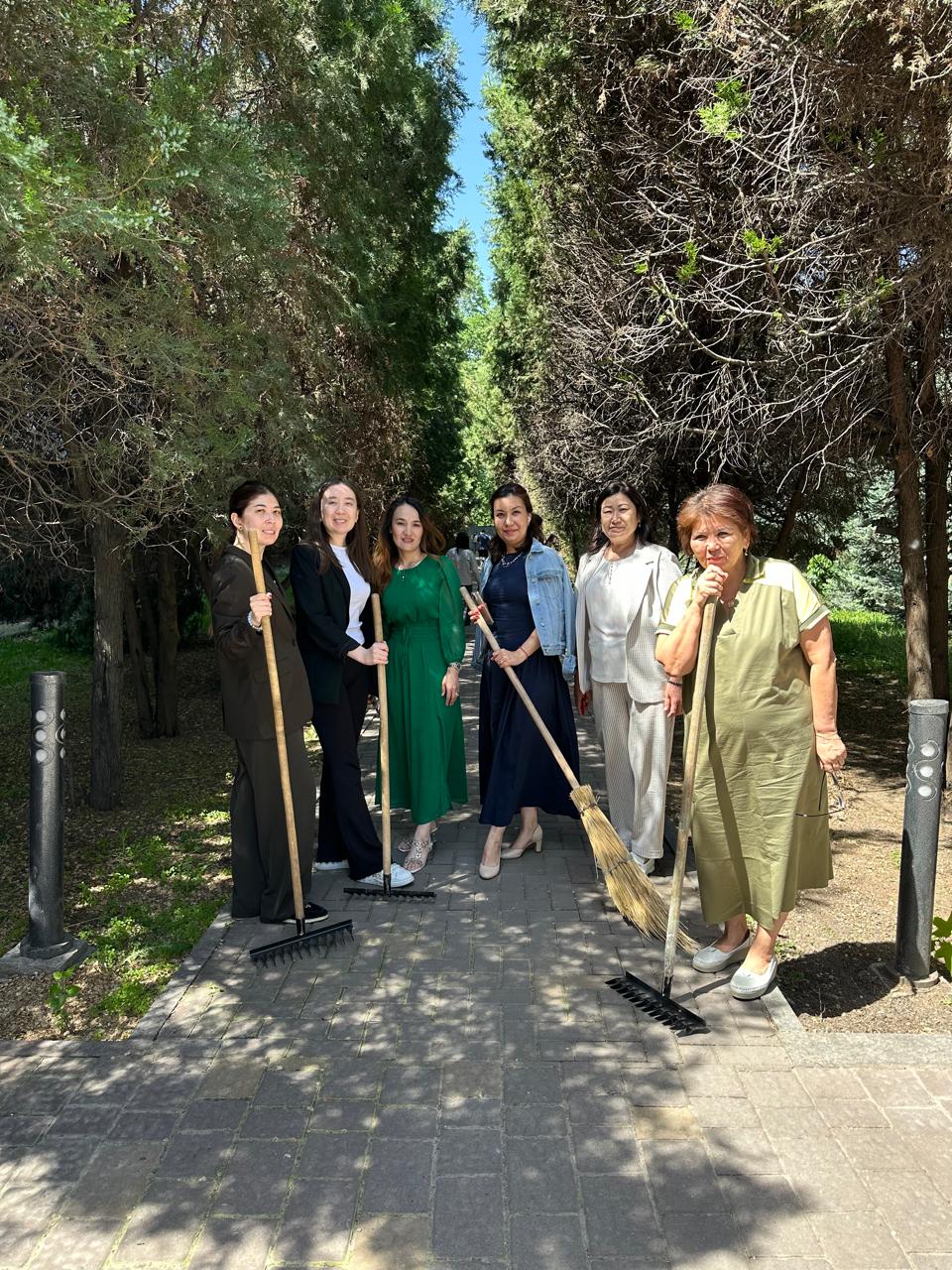
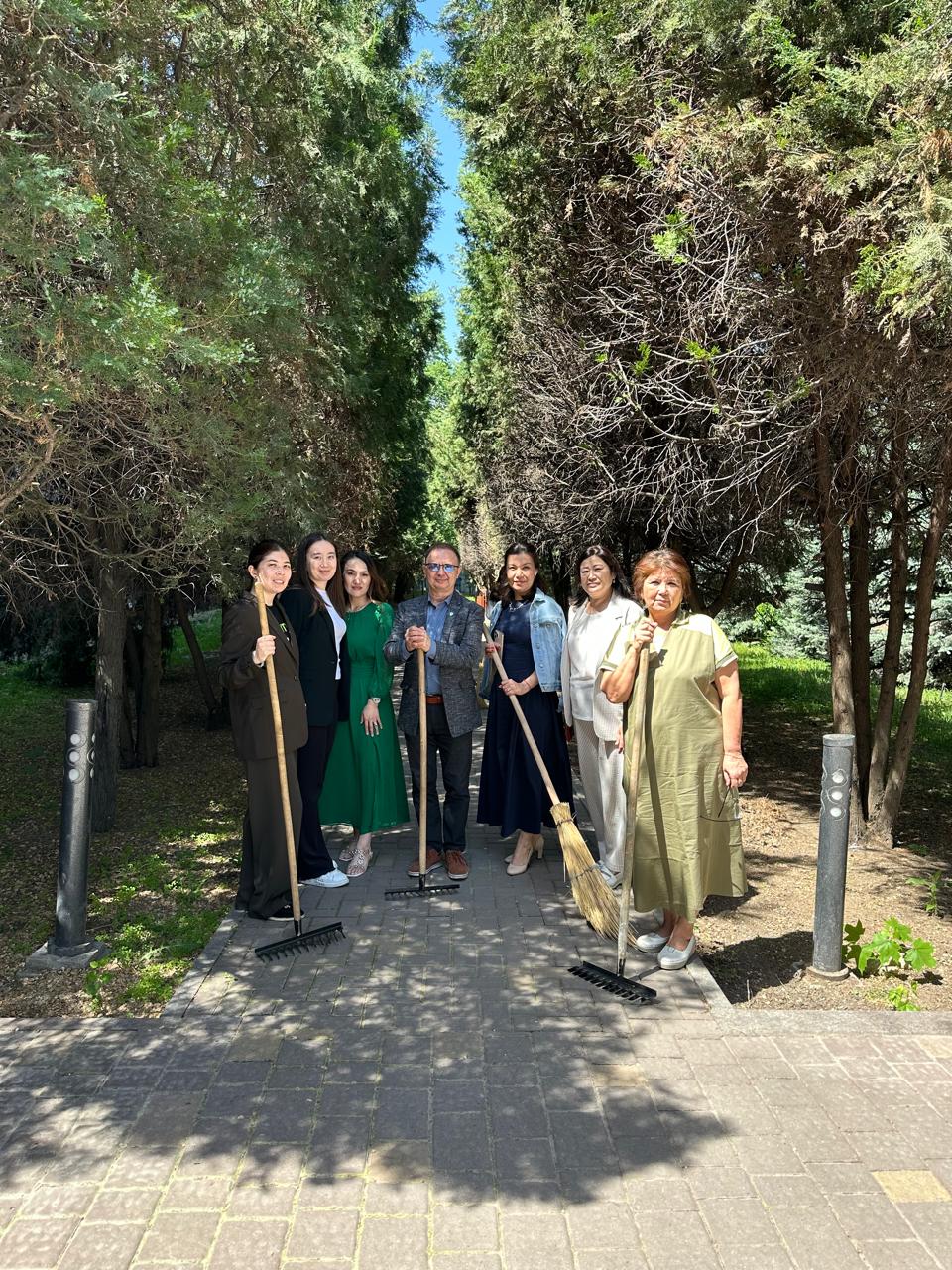
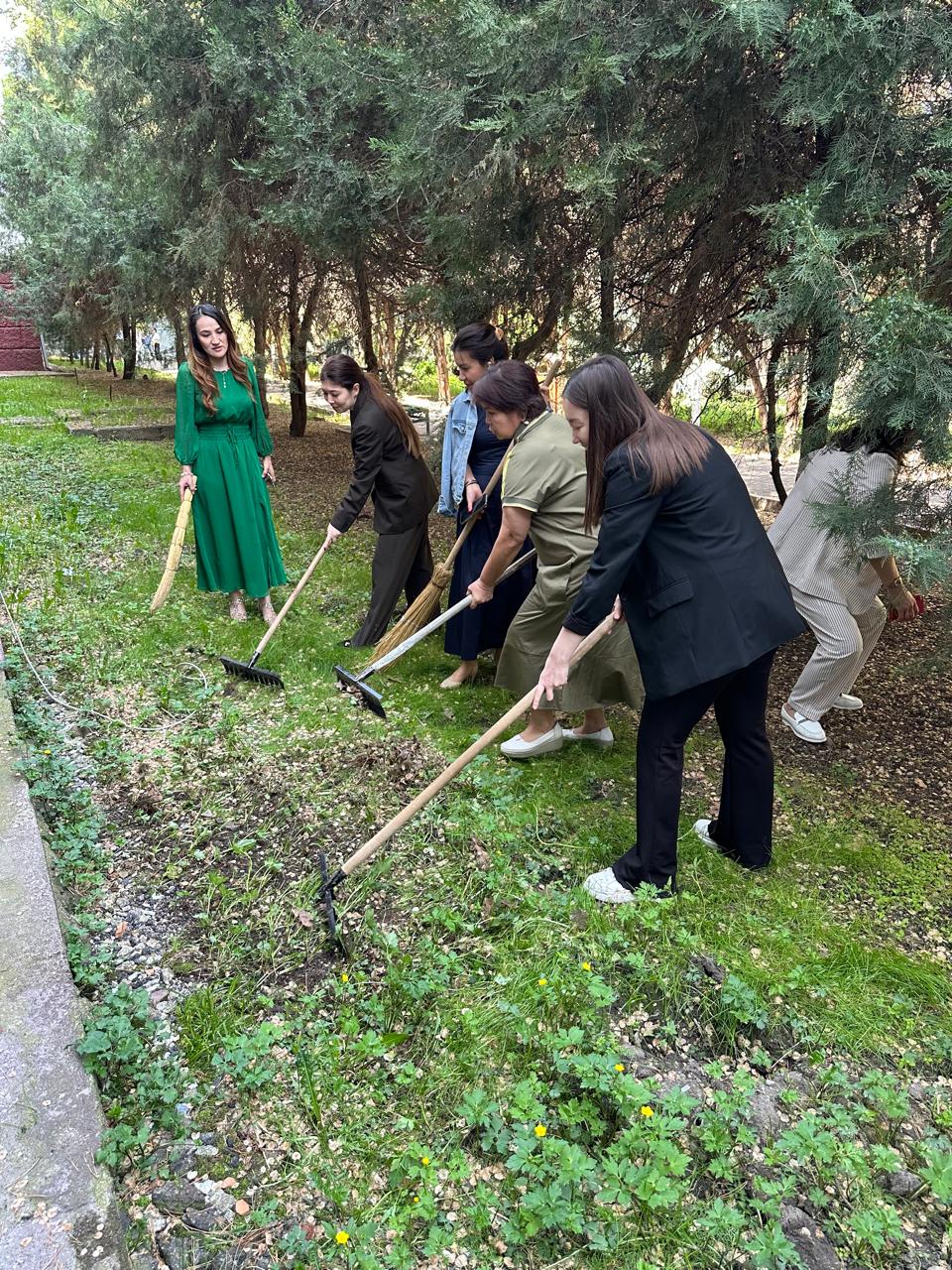

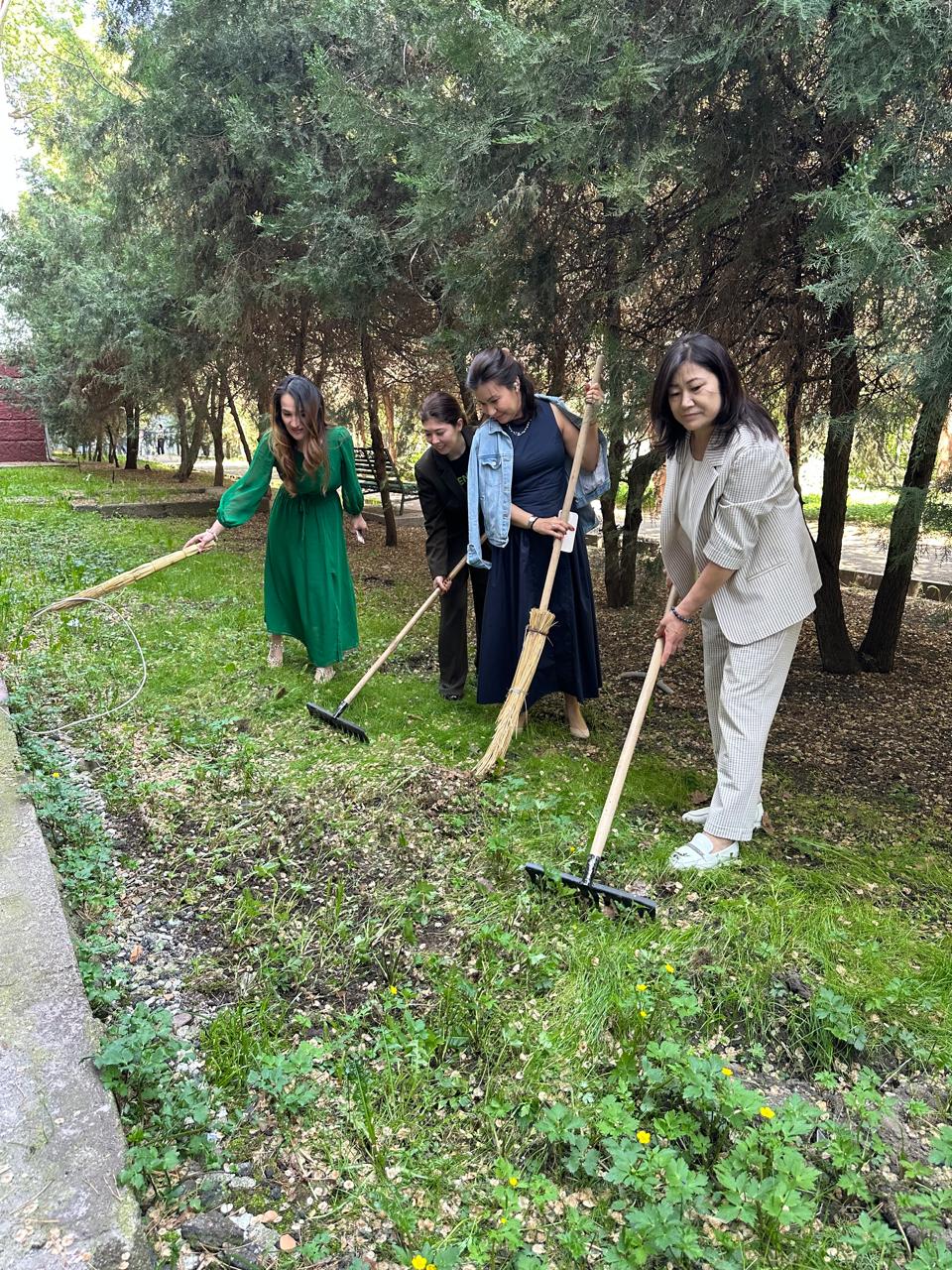
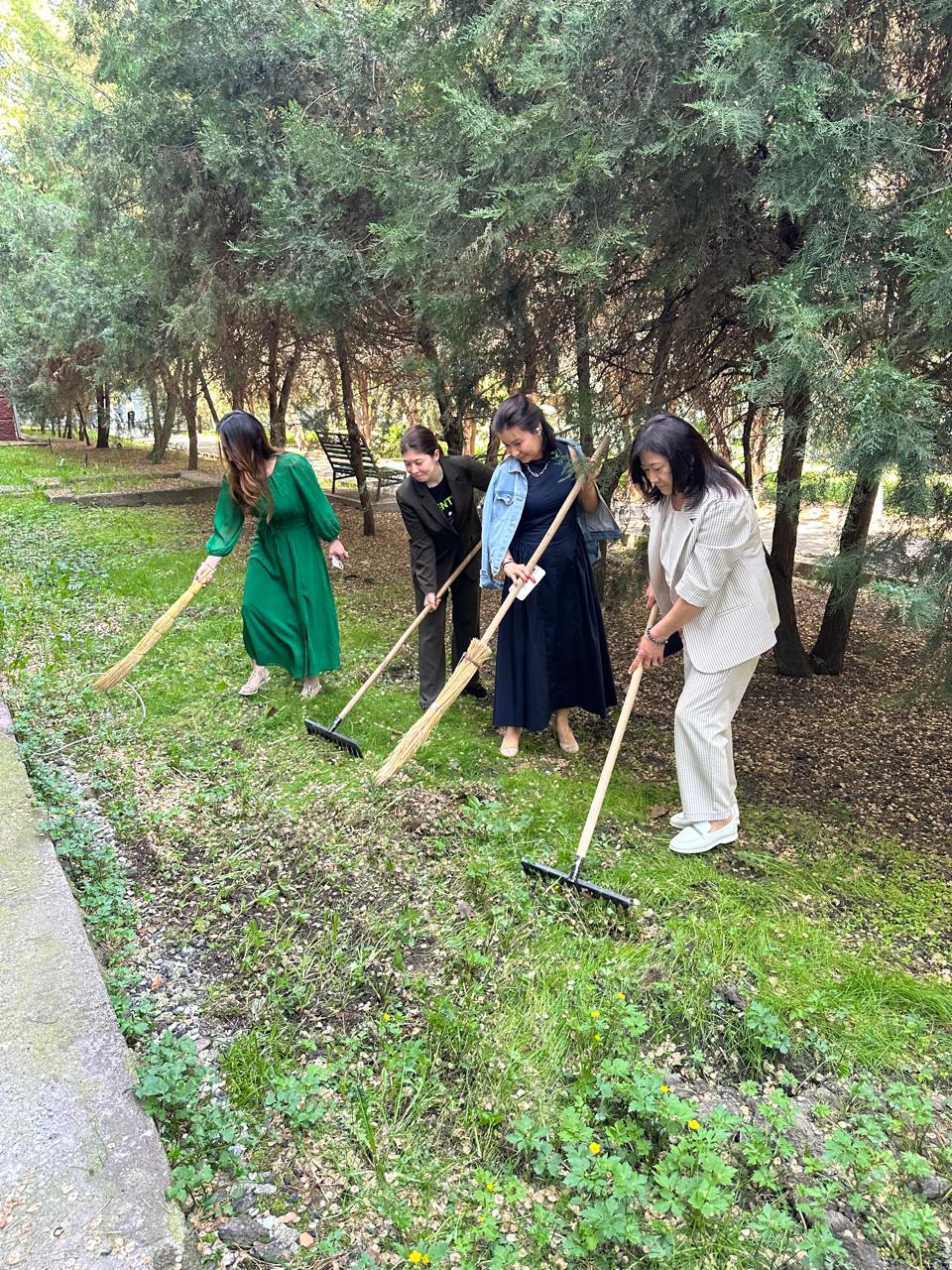
Almaty, Abay Avenue, 8
International Office/ Institute for green and sustainable development:
+7(727) 264-19-95 262-11-08
e-mail: info@kaznaru.edu.kz
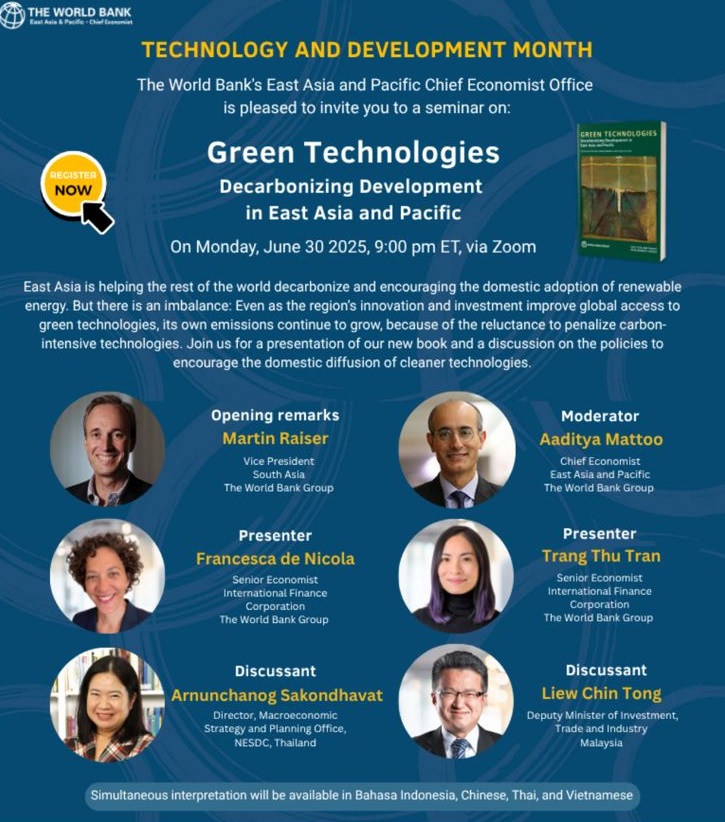
Join us for the Global Launch of the Human Development Report 2025!
Hosted by the United Nations Development Programme,
the European Commission, and the Kingdom of Belgium
Tuesday, 6 May 2025 at 10:30am - 12:30pm CET
The upcoming 2025 Human Development Report, "A matter of choice: people and possibilities in the age of AI," tackles one of the most pressing issues of our time: How can Artificial Intelligence enhance human potential and wellbeing? It explores AI’s impact across life stages and its influence on social, economic, and political systems. The report also features the latest Human Development Index (HDI) and a novel global survey of public perceptions of AI across multiple domains.
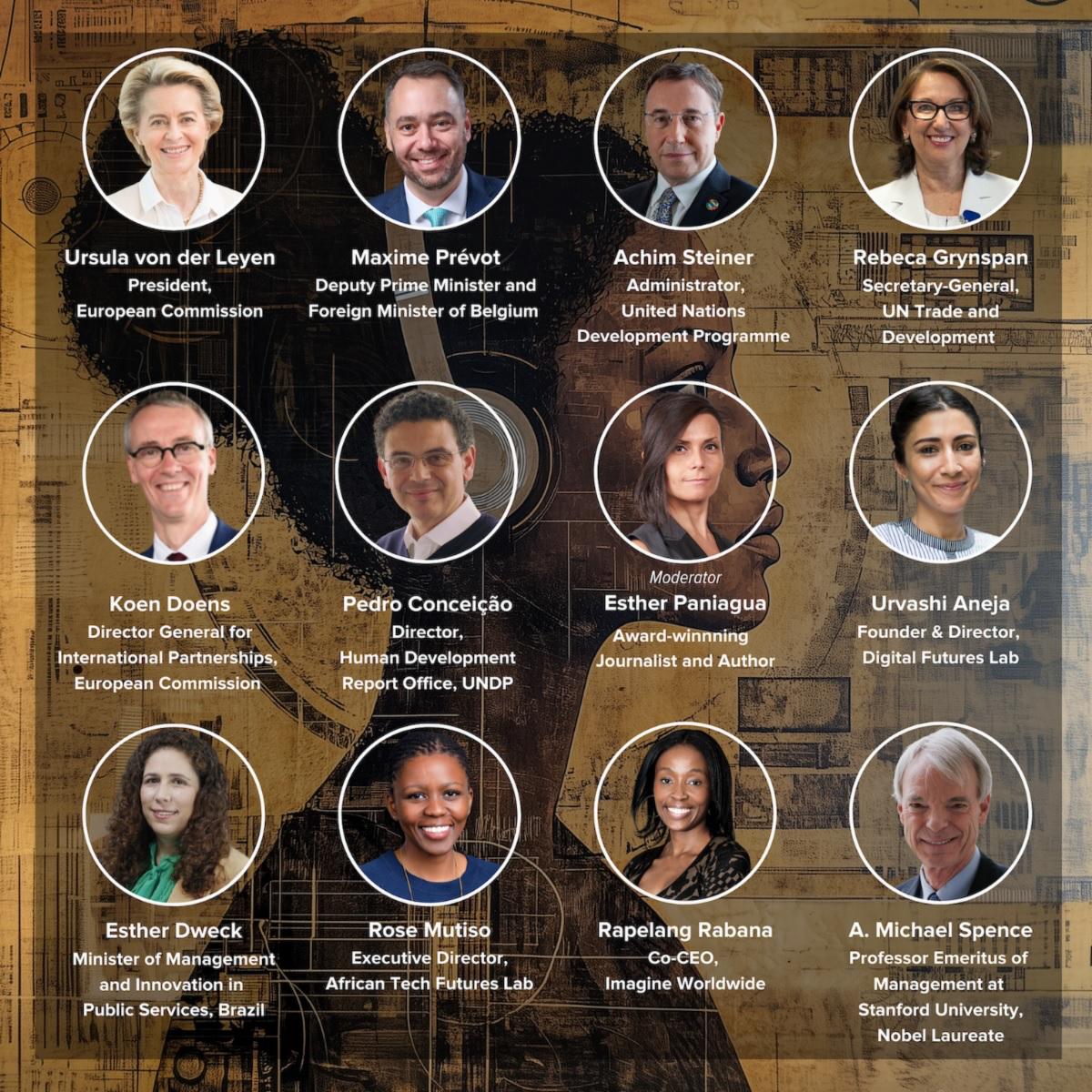
The 9th Steering Committee Meeting
The KazNARU team took part in a cleanup day ahead of Victory Day.
Demo Day Workshop How to present your Startup: From Idea to Impact
Workshop of publishing in Scopus-indexed journals
The University implements programs on sustainable development and environmental protection
Virtual Event: Strengthening Information Integrity in the Humanitarian Context
15th International Exhibition of Greenhouses and Flowers GreenHouses & Flowers 2025
UNAI-ISA virtual event, "Strengthening Information Integrity in the Humanitarian Context"
Entrepreneurship Development Institute in India
2025 02 22 Press Release Model UN
Press Release: KazNARU Strengthens Global Dialogue on Water Resources for World Water Day 2025
During the 9th Steering Committee Meeting, national coordinators are expected to provide updates on sustainability activities and initiatives in their respective countries. We highly value your insights and encourage you to share the current status and progress of sustainability to universities in your country. For your reference, please find attached the minutes of meeting of the previous meeting in Colombia.
Kindly submit your report no later than 2 June 2025 via the following link: https://iwgm.ui.ac.id/uigwurns-country-reports-2025. Even if you are unable to attend in person, we would greatly appreciate receiving your report.
EQUAL OPPORTUNITIES IN HIGHER EDUCATION: KAZNARU ADOPTS EUROPEAN EXPERIENCE
As part of the Green Week 2025 program, the Kazakh National Agrarian Research University (KazNARU) hosted a lecture on inclusivity in higher education. This event marked a significant step in promoting the principles of equal access, social justice, and academic openness, particularly within the context of sustainable development and international cooperation.
The lecture was delivered by Rafis Abazov, coordinator of the Greenmetric project, who shared insights from implementing inclusive educational practices in European countries and highlighted the project's key achievements. " Greenmetric is a project that includes an important component aimed at integrating inclusive approaches into the university environment, developing intercultural dialogue, and supporting students with special educational needs," he said.
The lecture covered the core principles of inclusive education, including the accessibility of learning materials, the adaptation of curricula, the creation of a supportive environment for students with disabilities, and support for students from socially vulnerable groups. Special attention was given to the European experience, where inclusivity is viewed not as an optional extra, but as an integral part of educational policy.
Examples from universities in Germany, Portugal, and Spain showed how a systemic approach to inclusion can transform academic culture. These countries are actively implementing digital technologies to support students with disabilities, creating multidisciplinary teams to assist in the learning process, and running mentorship and psychological support programs.
The goal of Greenmetric is to develop and implement inclusive strategies at partner universities, exchange best practices, and create sustainable mechanisms for student support. As part of the project, training sessions for faculty were held, methodological guides were developed, and student initiatives were organized to raise awareness about the rights and needs of diverse groups of learners.
The lecture generated significant interest among KazNARU faculty, students, and administrative staff. Participants actively discussed how to adapt the European experience to the Kazakh context, shared their observations, and offered ideas for improving the university's inclusive environment. The need for interdepartmental cooperation—among universities, ministries, NGOs, and international organizations—was particularly emphasized as a way to create a sustainable support system.
At the conclusion of the lecture, the results of Greenmetric 's work in Kazakhstan were presented, including pilot projects on adapting academic courses, creating inclusive learning spaces, and launching an online platform for students with special needs. Plans were also announced to expand cooperation and involve new partners in regional initiatives.
Thus, the lecture served not only as an educational event but also as a platform for a strategic dialogue about the future of higher education in Kazakhstan. Inclusivity was presented as a key element of sustainable development, academic ethics, and international integration. The experience of the Greenmetric project showed that even small steps—adapting materials, raising awareness, and creating an accessible environment—can lead to significant changes in the lives of students and the entire university system.
KazNARU will continue its work in this area, strengthening partnerships and developing inclusive practices so that every student, regardless of their abilities, feels like a part of the academic community.
KazNARU TechnoWomen: Empowering Female Scientists of Tomorrow 🔬👩🔬
At Kazakh National Agrarian Research University (KazNARU), the TechnoWomen Club is redefining the future of science and technology by championing the voices, talents, and ambitions of female students in STEM fields. Aligned with national and global efforts to promote gender equality in science, the club serves as a vibrant platform for mentorship, innovation, and leadership development.
1️⃣ Creating a Community of Aspiring Scientists
TechnoWomen at KazNARU brings together students, faculty, and industry professionals to form a supportive network of women in science. Through regular meetups, forums, and collaborative projects, the club fosters a sense of belonging and shared purpose. Members explore diverse fields—from biotechnology and robotics to environmental science and agritech—while building lasting connections that transcend disciplines.
2️⃣ Skill-Building Through Workshops and Seminars
The club organizes hands-on workshops, coding bootcamps, and research seminars tailored to the needs of female students. Topics range from data science and AI to sustainable agriculture and scientific writing. These sessions not only enhance technical proficiency but also boost confidence and career readiness. Guest speakers from leading tech companies and research institutes offer real-world insights and inspire students to pursue ambitious goals.
3️⃣ Mentorship and Career Guidance
TechnoWomen provides structured mentorship programs where students are paired with experienced scientists, entrepreneurs, and educators. These mentors guide students through academic challenges, research opportunities, and career planning. The club also facilitates internships, lab placements, and participation in national and international science competitions—opening doors to professional growth and global exposure.
4️⃣ Promoting Female Leadership in STEM
Beyond technical training, TechnoWomen emphasizes leadership development. Members are encouraged to take initiative in organizing events, leading research teams, and representing KazNARU at conferences. The club collaborates with the national TechnoWomen network A, which advocates for women’s participation in high-tech industries across Central Asia. Through this partnership, KazNARU students gain access to broader platforms for visibility, funding, and innovation.
5️⃣ Inspiring the Next Generation
TechnoWomen actively engages in outreach to schools and communities, introducing young girls to the wonders of science. Through the affiliated TechnoGirls initiative B, club members mentor high school students, lead STEM clubs, and conduct science fairs. These efforts aim to break stereotypes, spark curiosity, and build a pipeline of future female scientists. By sharing their journeys, KazNARU students become role models for a more inclusive and dynamic scientific community.
---
🌟 The TechnoWomen Club at KazNARU is more than an extracurricular group—it’s a movement. It empowers women to innovate, lead, and shape the future of science. As the club continues to grow, it reaffirms KazNARU’s commitment to equity, excellence, and global impact in education.

.jpeg)
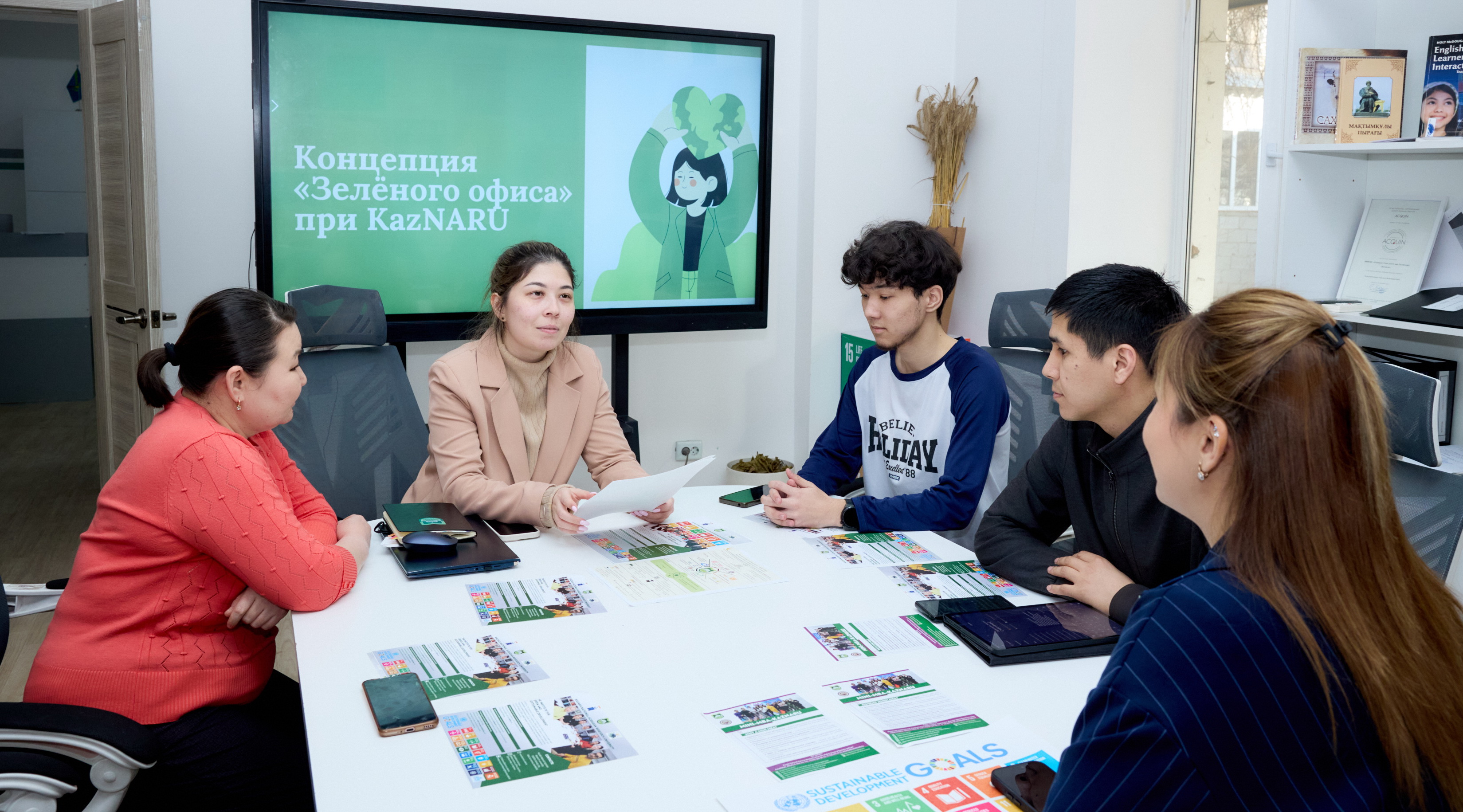
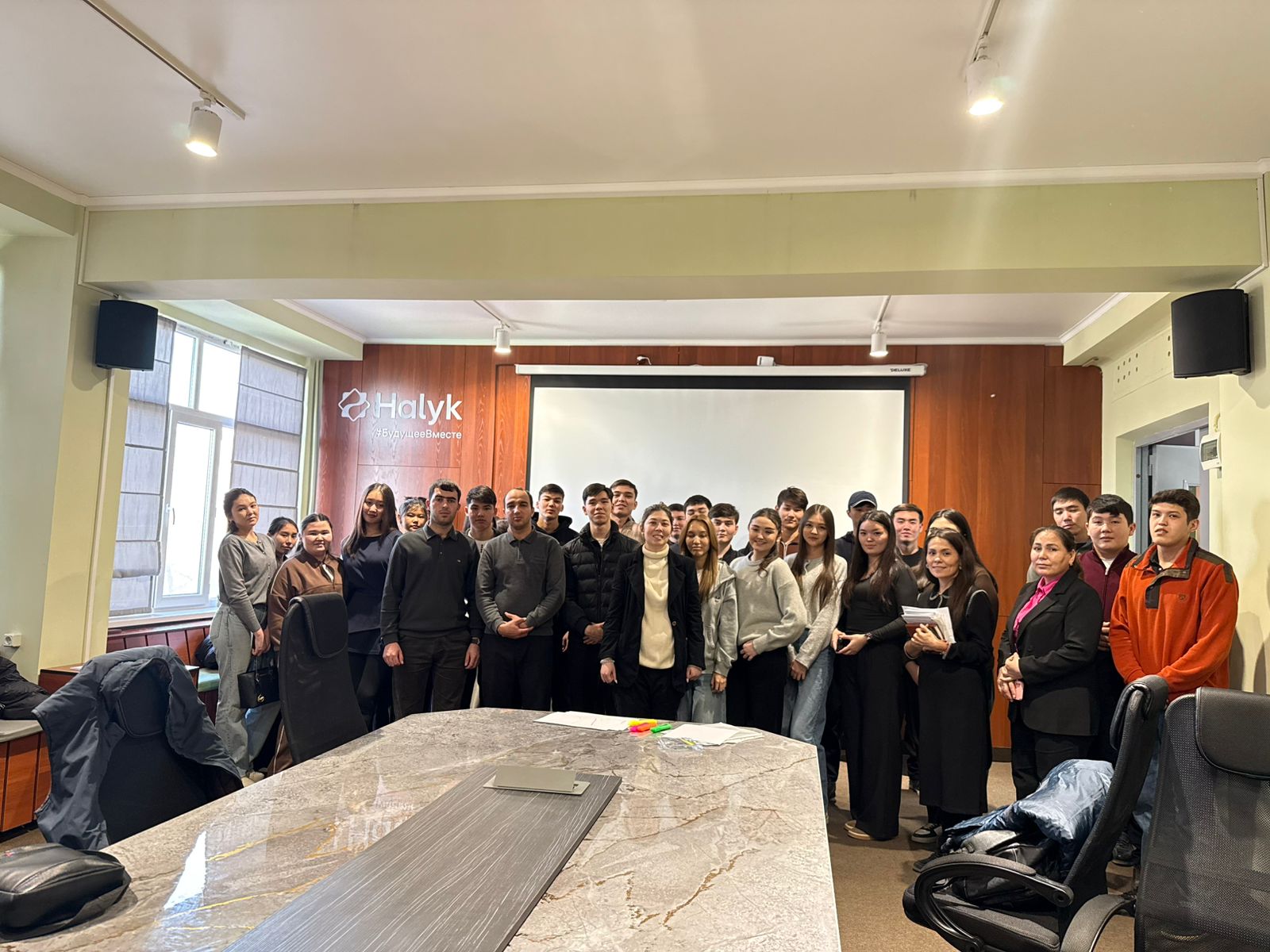
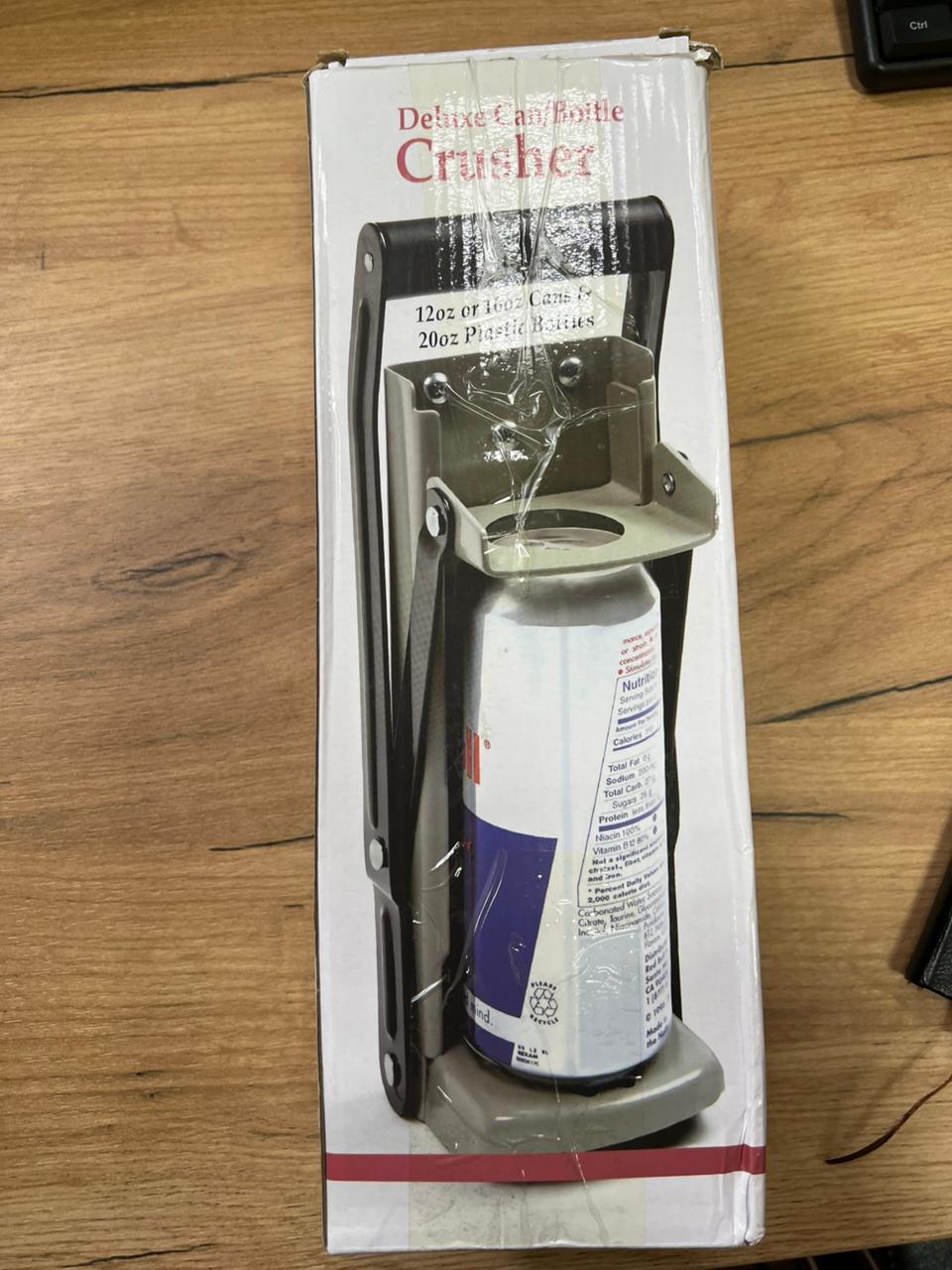
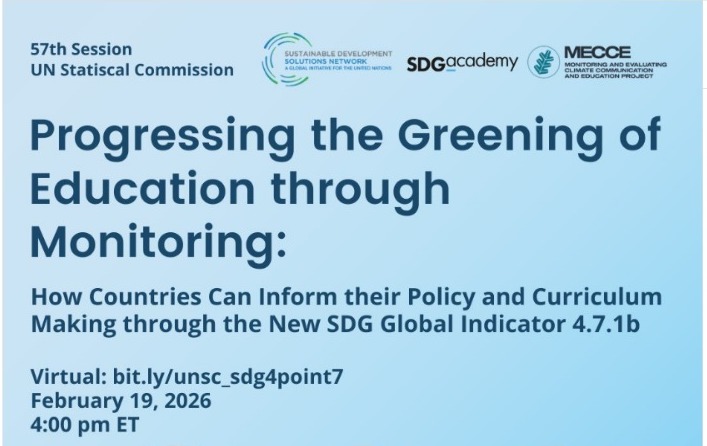
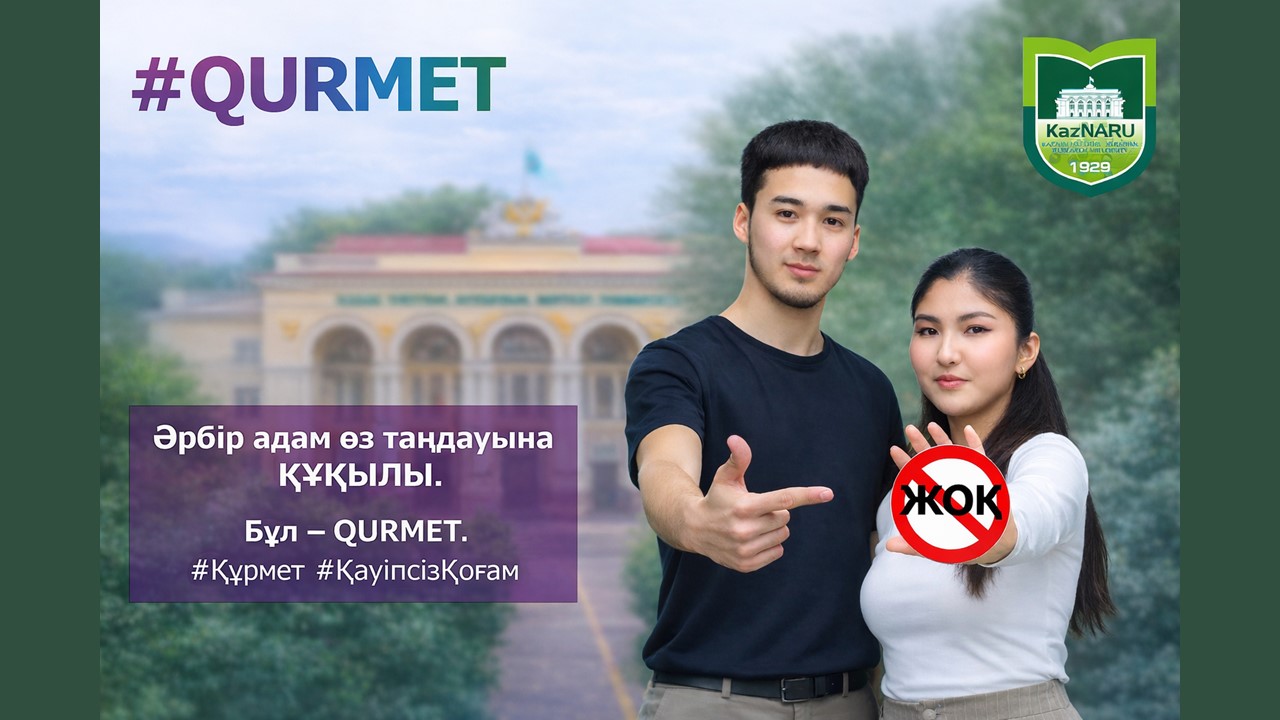
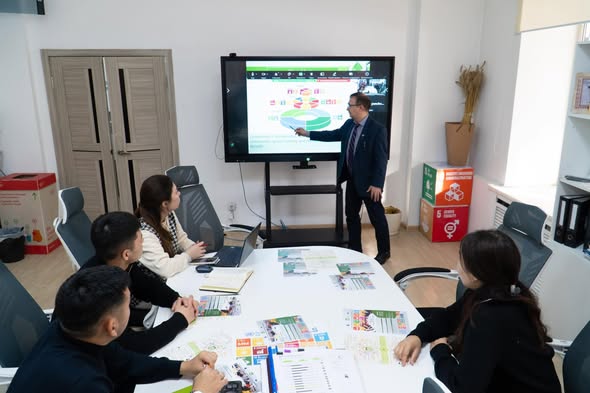
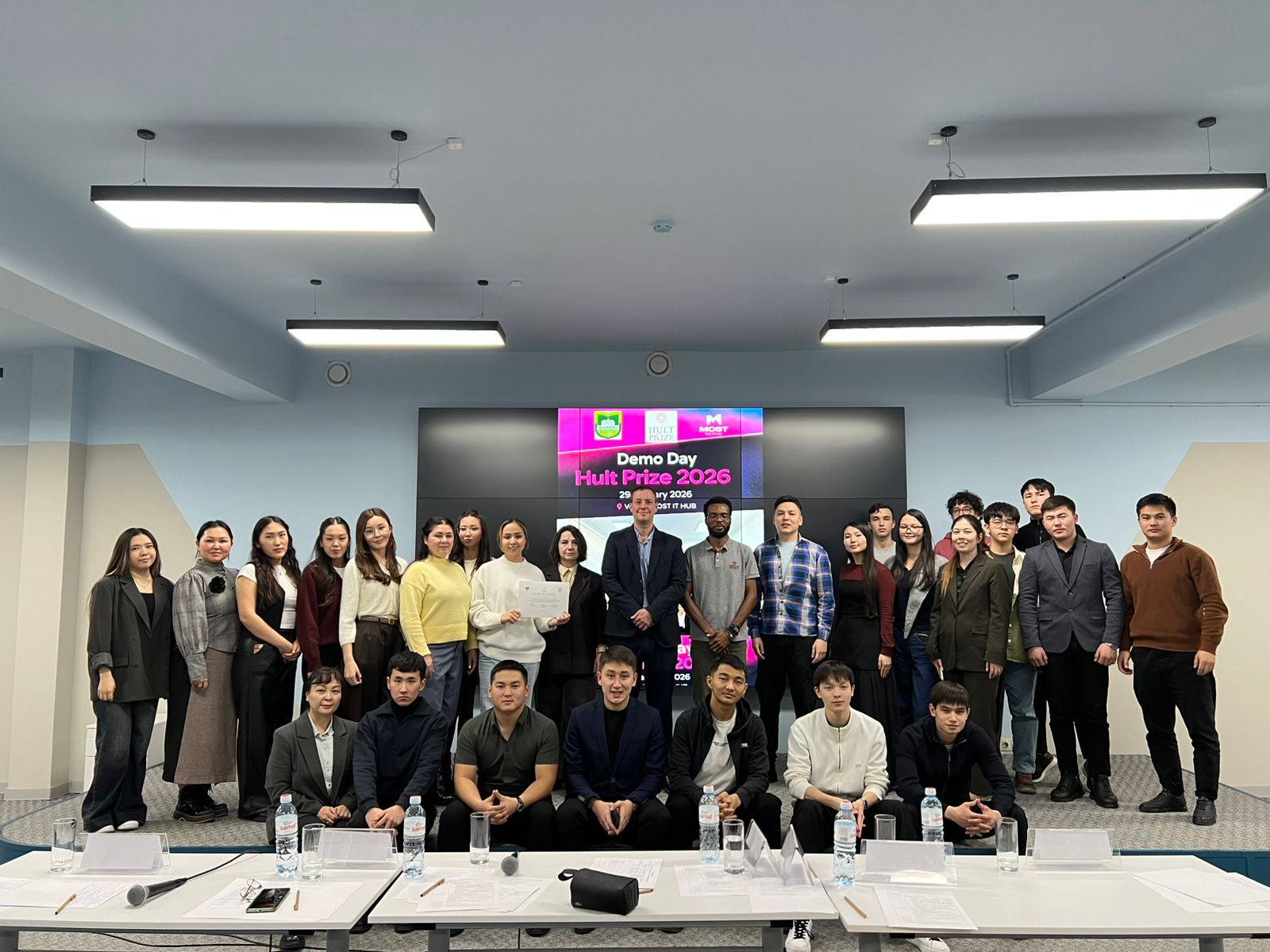
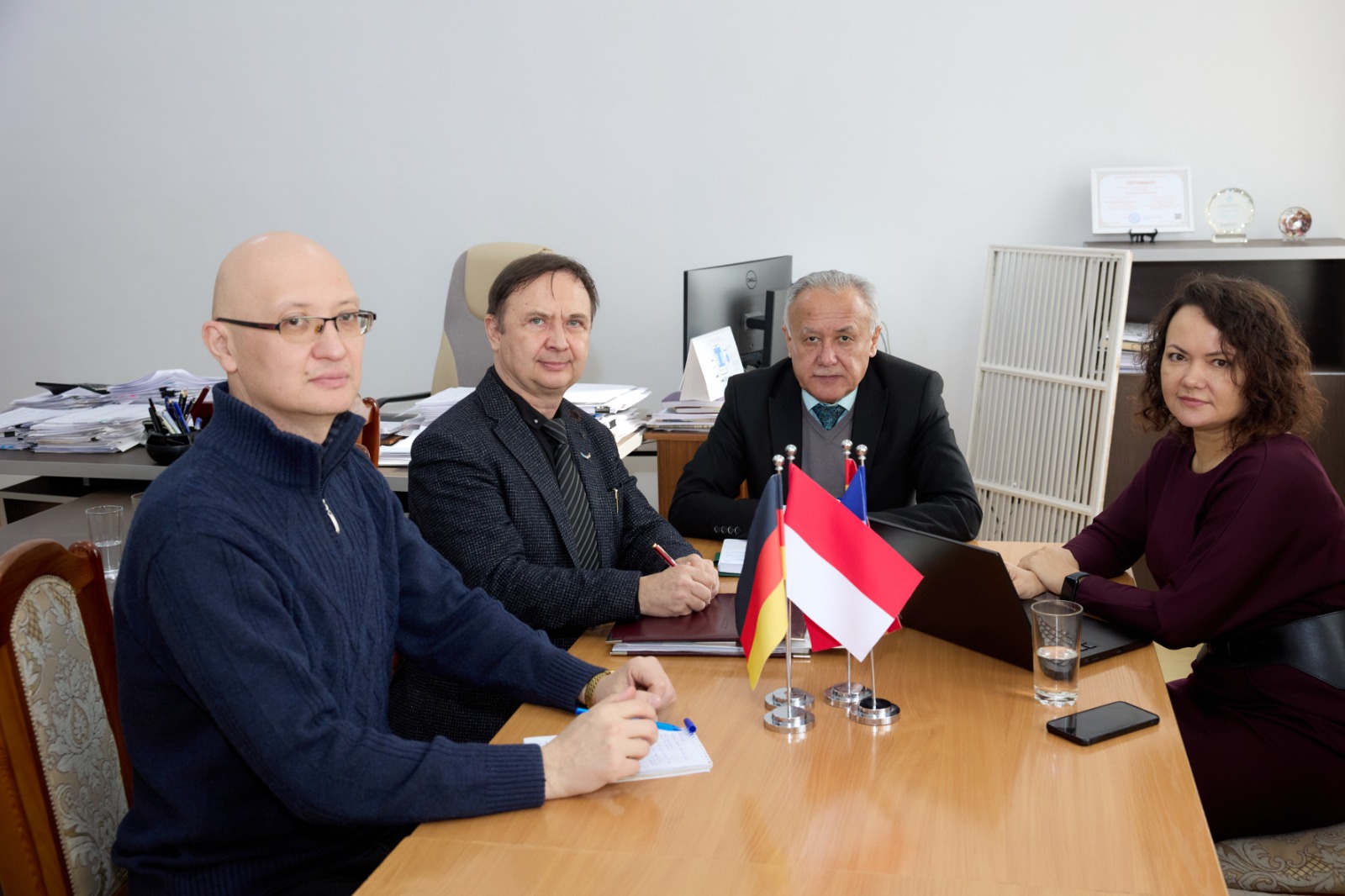
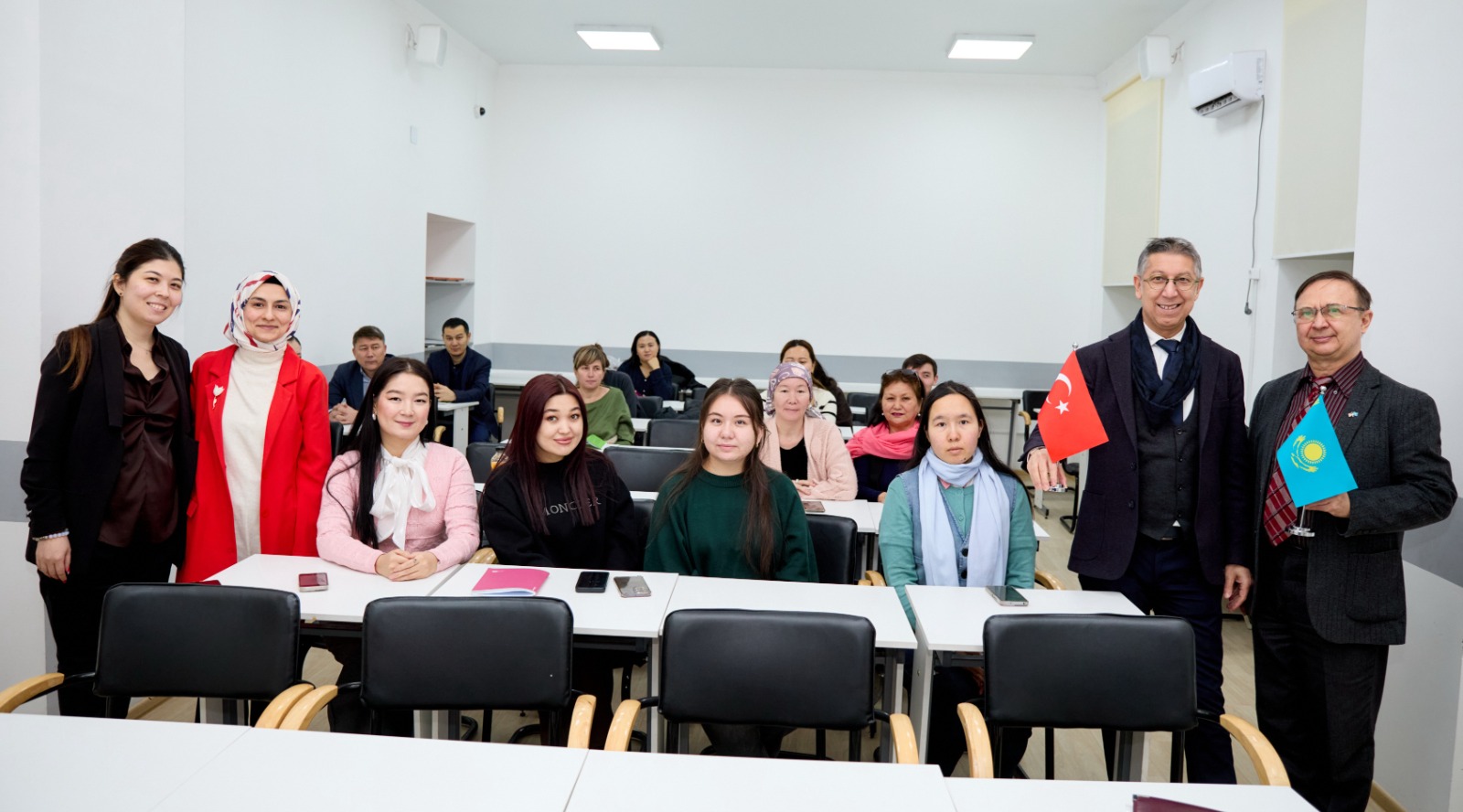
.jpeg)
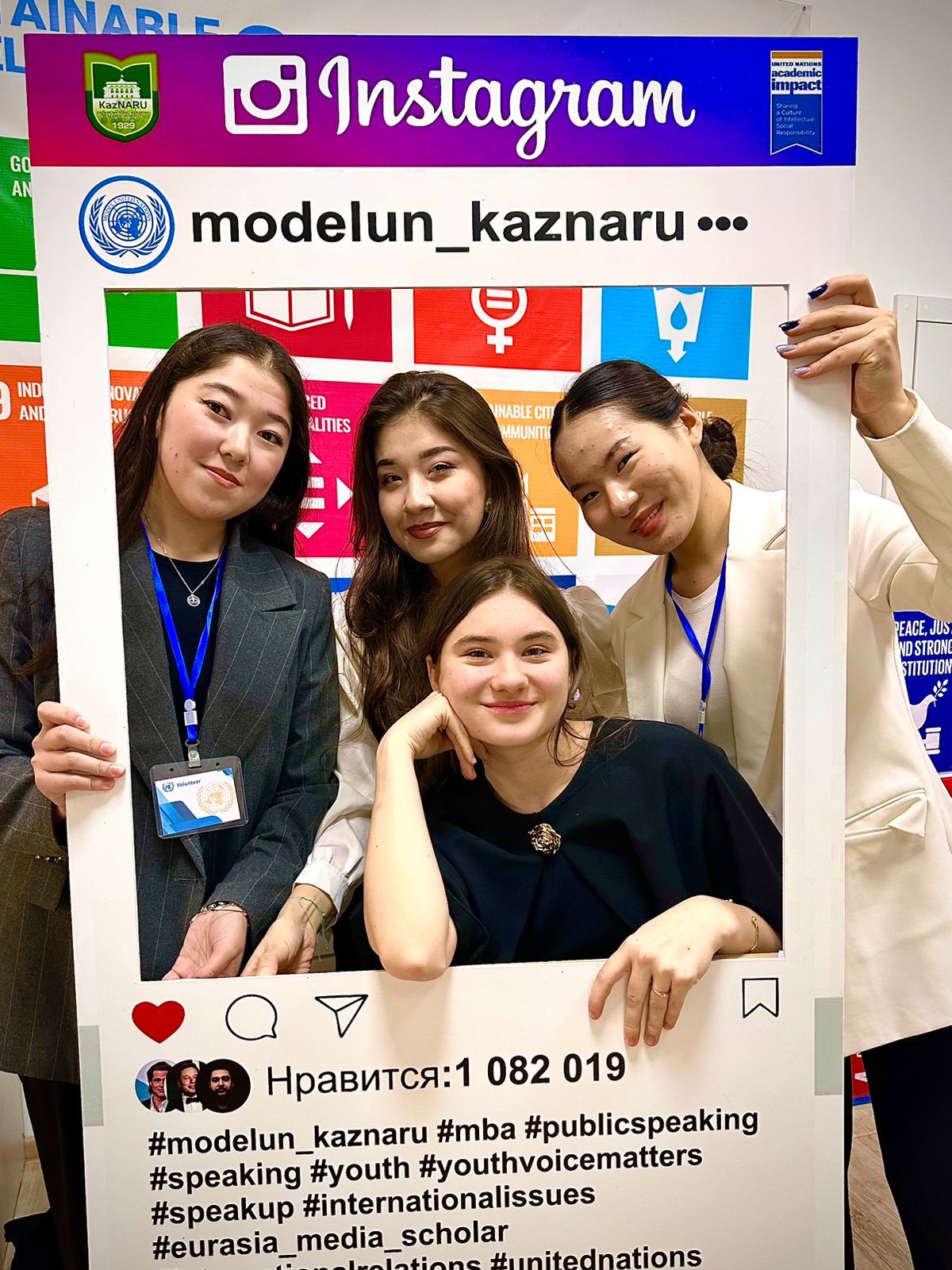
.jpeg)
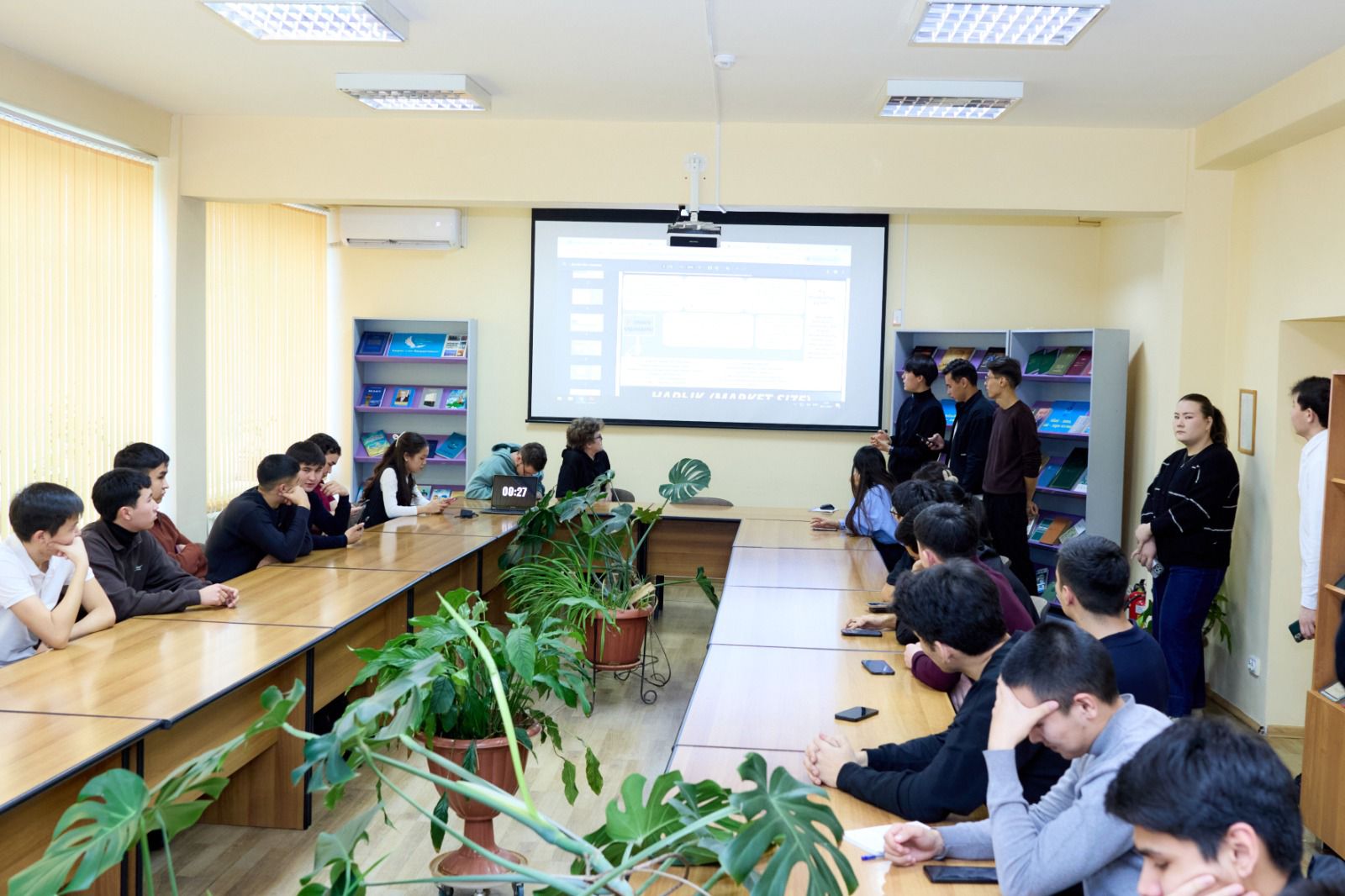

.jpeg)
.jpeg)
